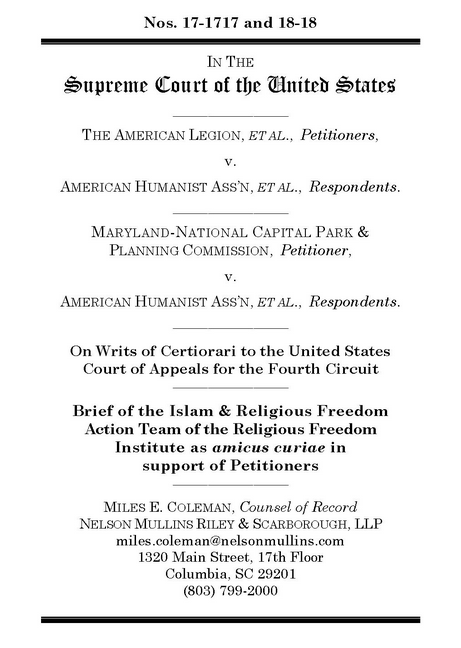AMICUS BRIEFS
RFI works to advance religious freedom in culture, politics, and law. Filing friend-of-the-court, or amicus curiae, briefs is an important facet of that work. An amicus curiae brief is filed by a person or entity in a court case who is not a party to the case but who has an interest in the outcome.
The purpose of such a brief is to assist the court in making a just and wise decision. Amicus briefs encourage courts to see the case before them in a broader context. They differ from briefs filed by parties to the case in that they need not adhere strictly to legal arguments germane to the case, but may discuss broader policy concerns.
Although litigation is not RFI’s primary arena of work, RFI often files or joins amicus briefs in order to educate the courts about the broader context and implications for religious freedom of the cases before them.
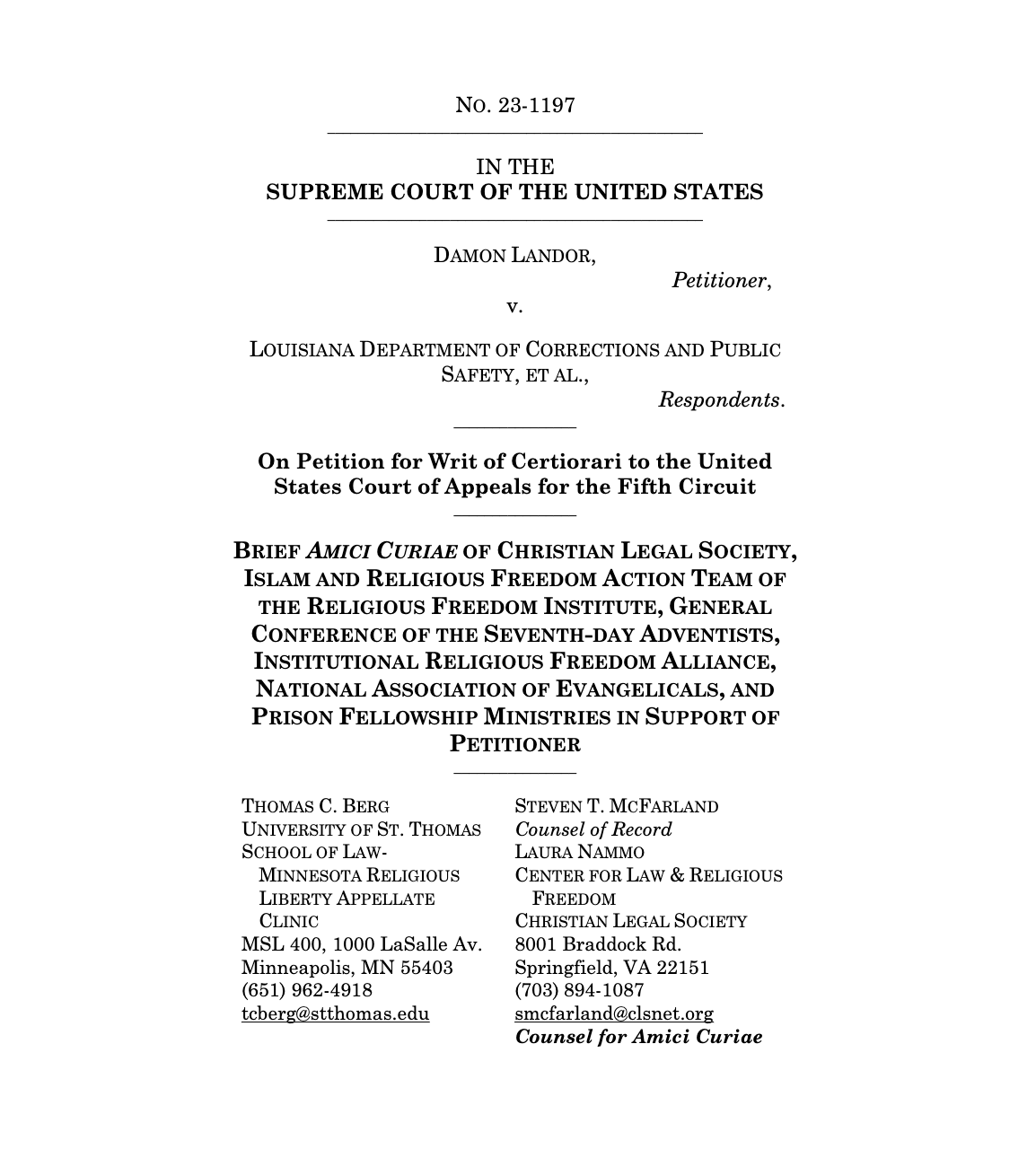
Landor v. Louisiana Dept. of Corrections
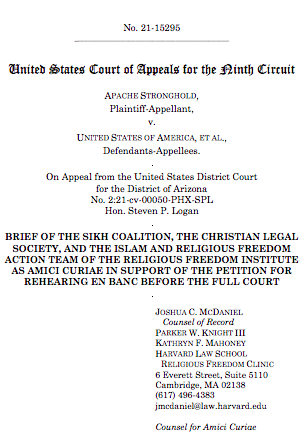
Apache Stronghold v. United States II
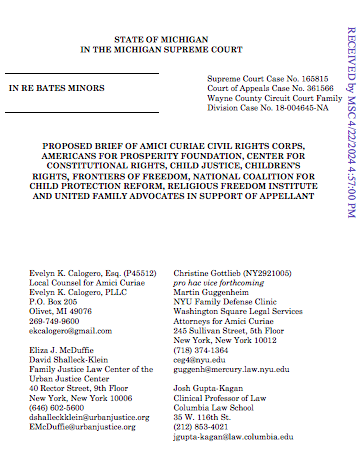
In re Bates / In re Dailey
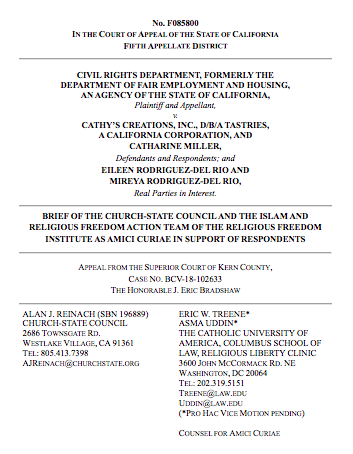
Civil Rights Department v. Cathy’s Creations
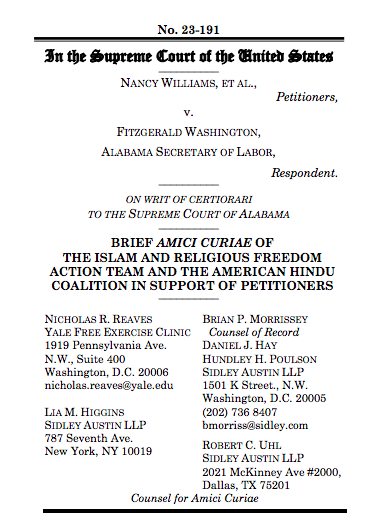
Williams v. Washington
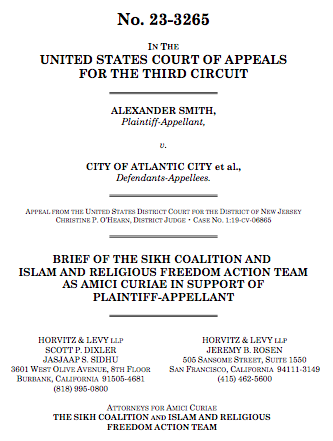
Smith v. City of Atlantic City
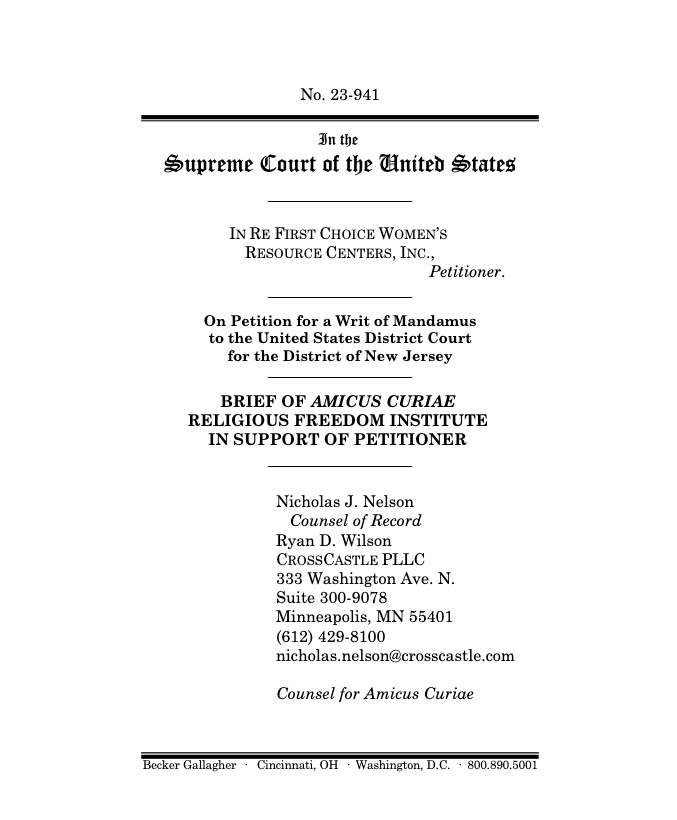
In Re First Choice Women’s Resource Centers Inc.
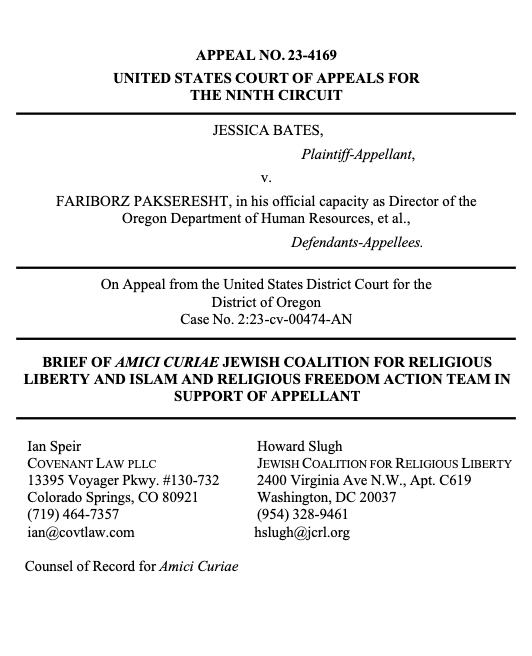
Bates v. Pakseresht
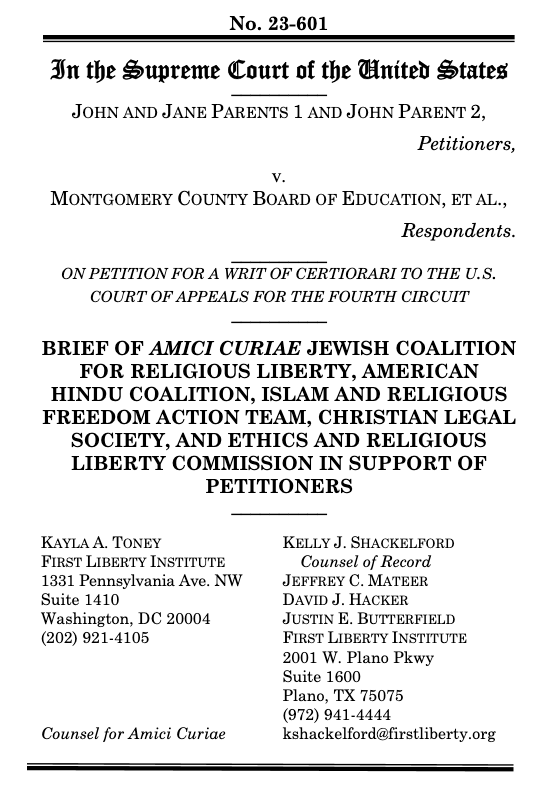
Parents v. Montgomery County Board of Education 2
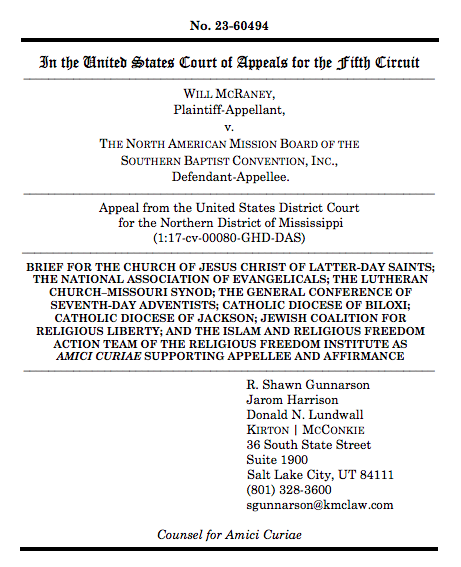
McRaney v. North American Mission Board of the Southern Baptist Convention II
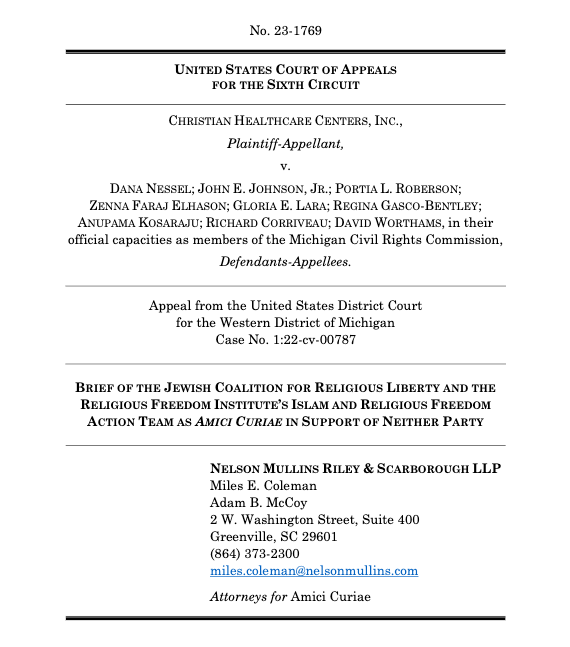
Christian Healthcare Centers v. Nessel
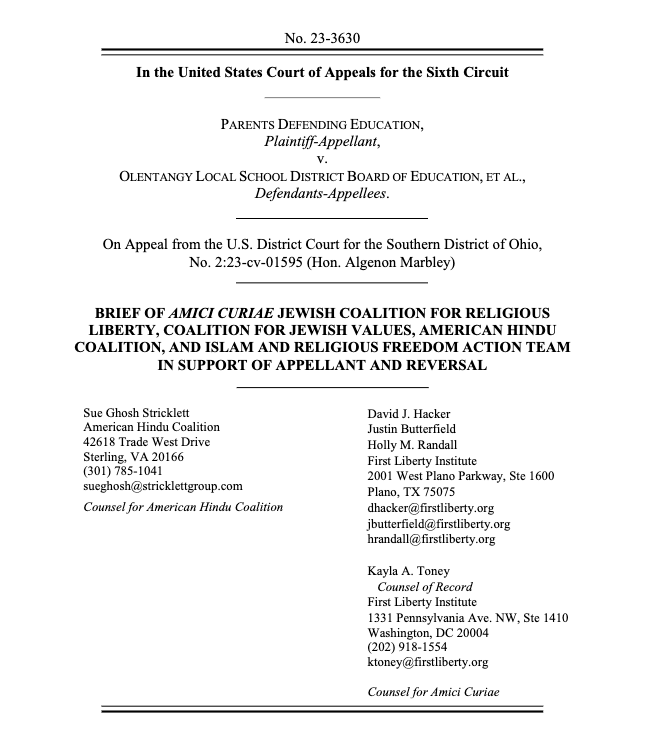
Parents Defending Educ. v. Olentangy Local Sch. Dist. Bd. of Educ.
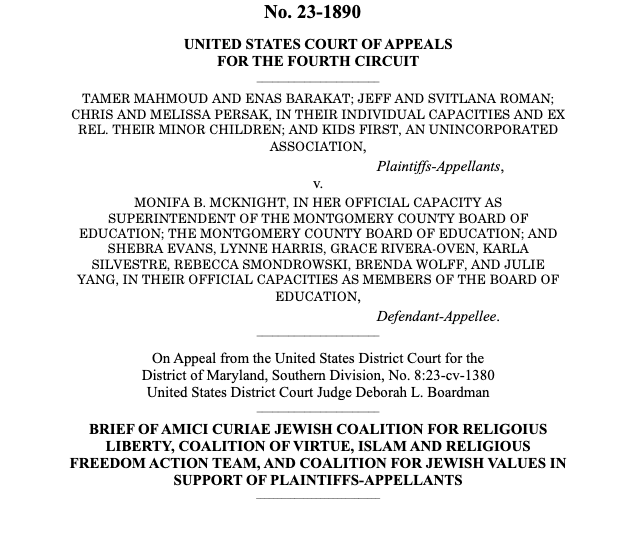
Mahmoud v McKnight 2
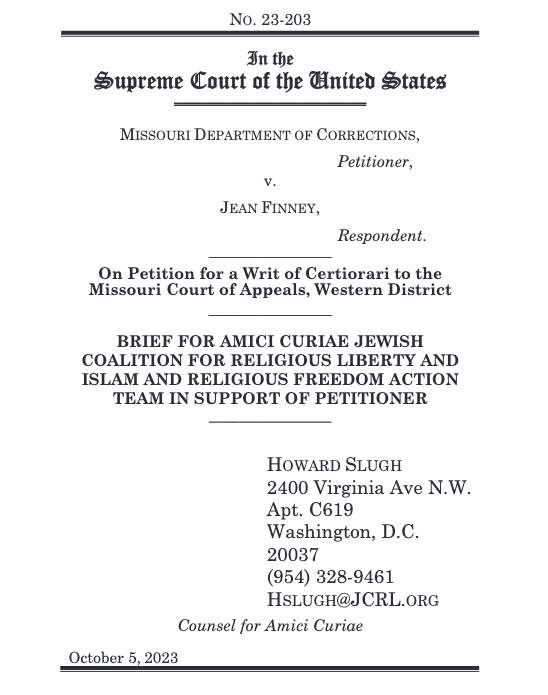
Missouri Department of Corrections v. Finney
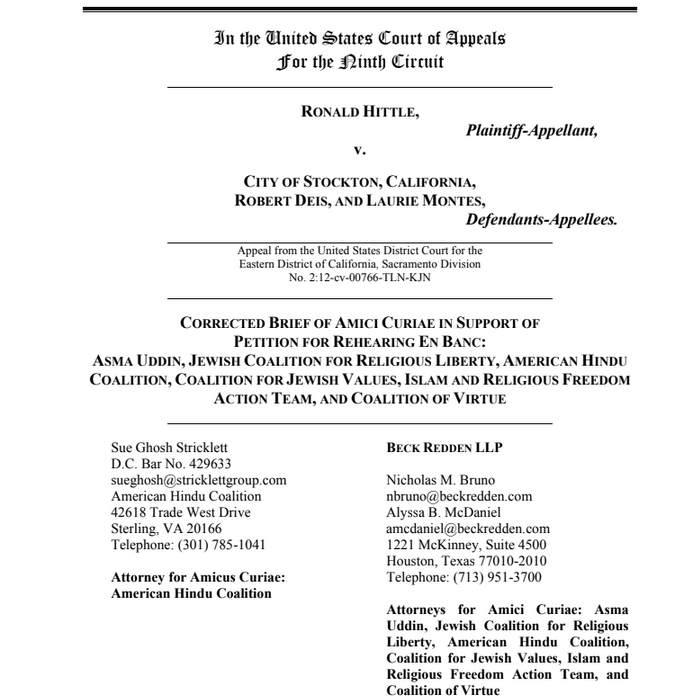
Hittle v. City of Stockton
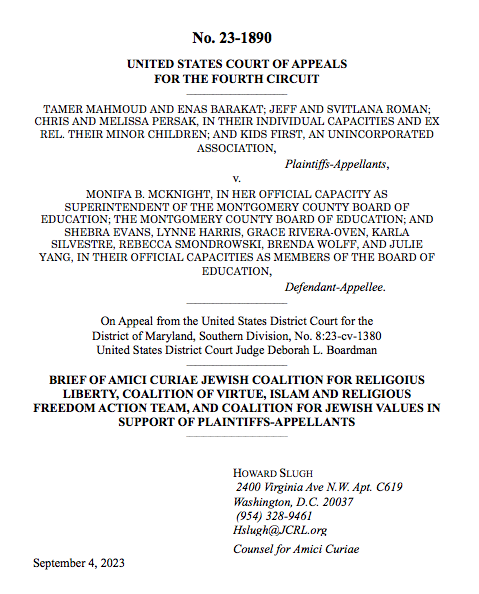
Mahmoud v. McKnight
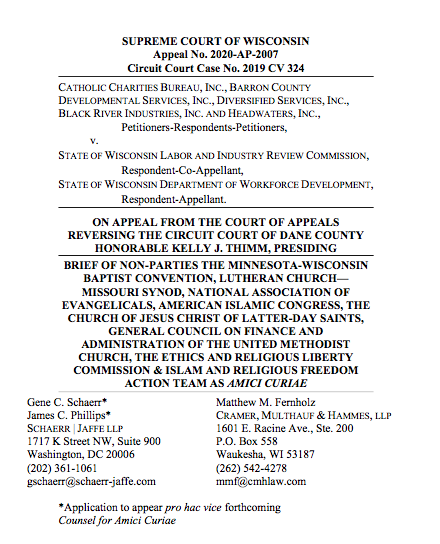
Catholic Charities Bureau v. Wisconsin Labor & Industrial Review Commission
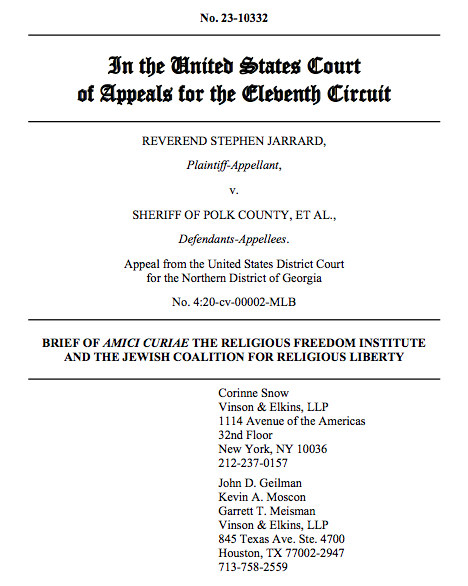
Jarrard v. Sheriff of Polk County
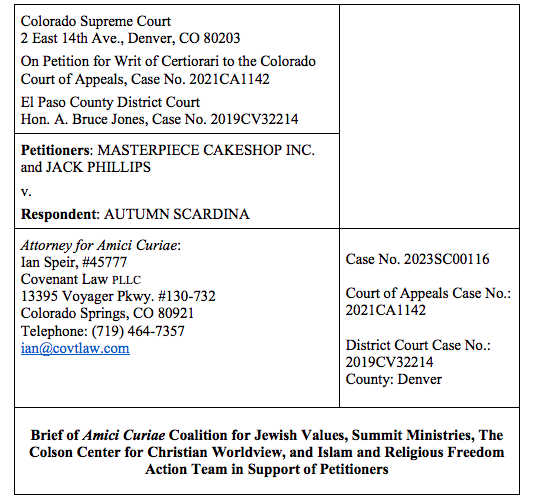
Scardina v. Masterpiece Cakeshop
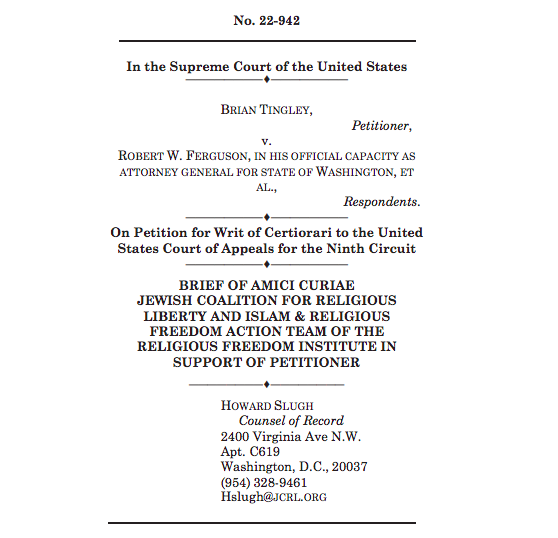
Tingley v. Ferguson
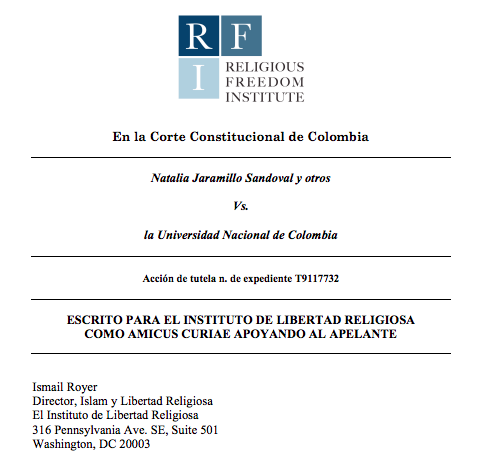
Jaramillo Sandoval v. la Universidad Nacional de Colombia
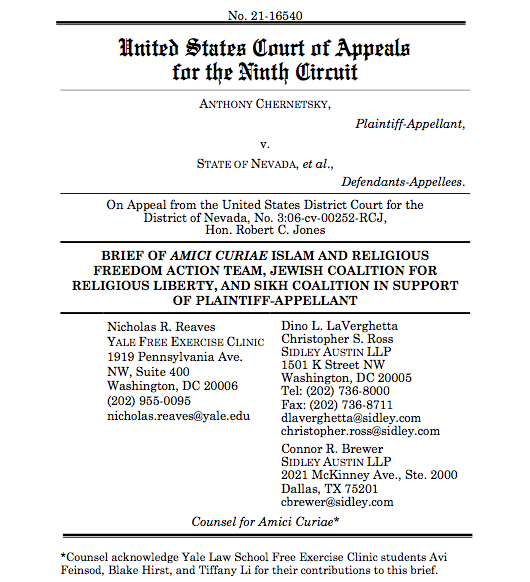
Chernetsky v. Nevada
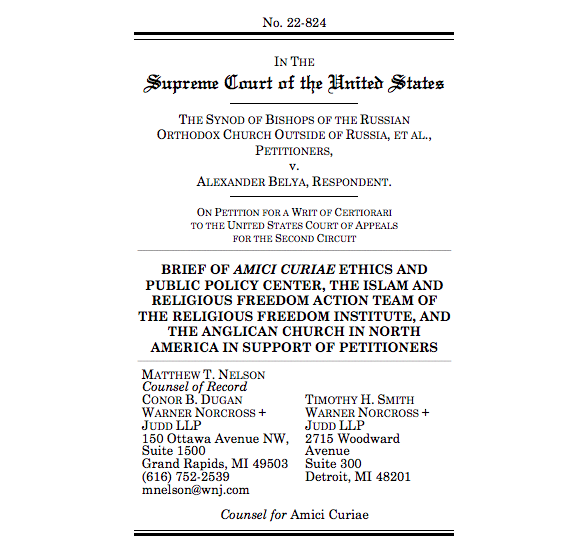
Synod of Bishops of the Russian Orthodox Church Outside of Russia v. Belya
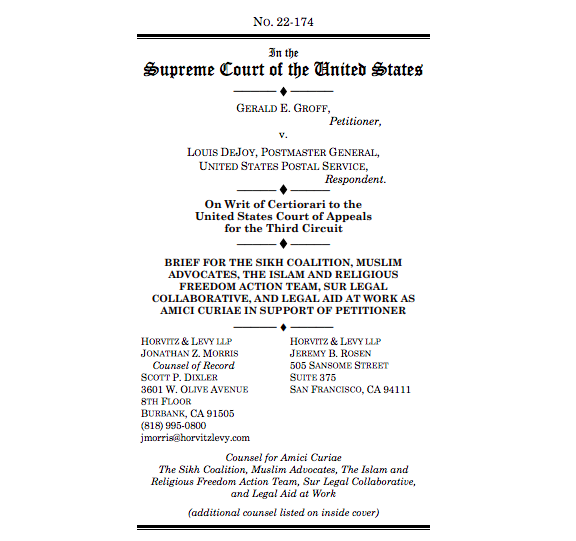
Groff v. DeJoy II
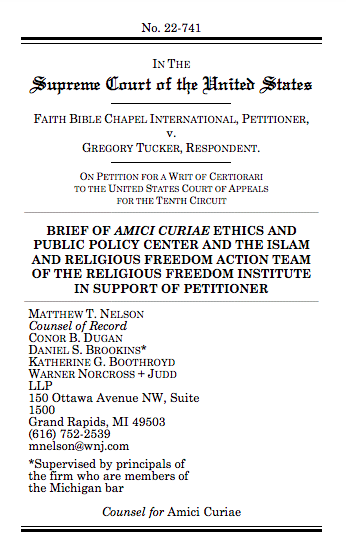
Faith Bible International v. Tucker
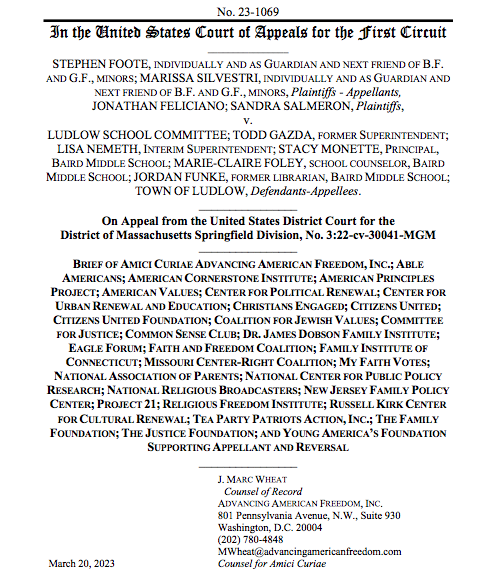
Foote v. Ludlow School Commitee
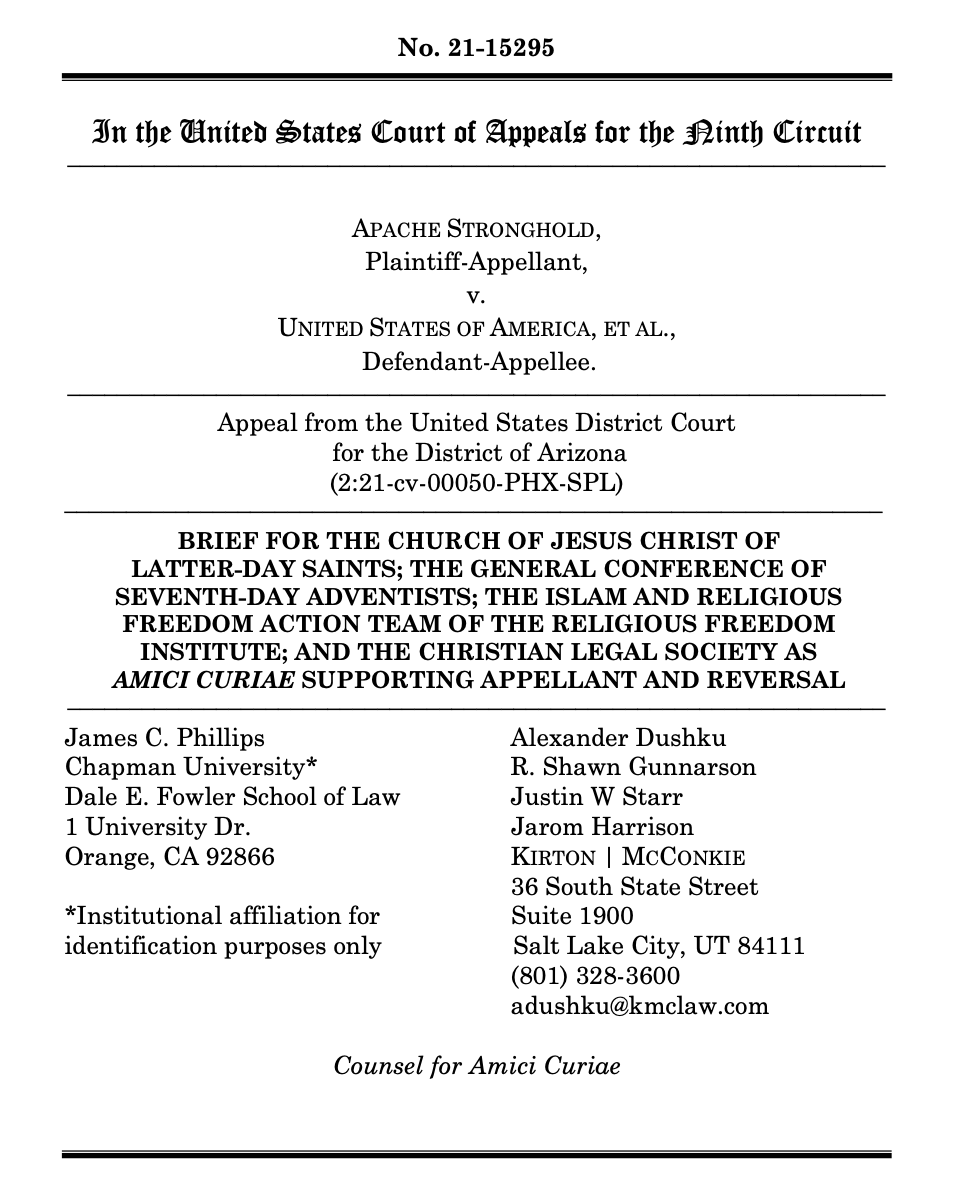
Apache Stronghold v. United States
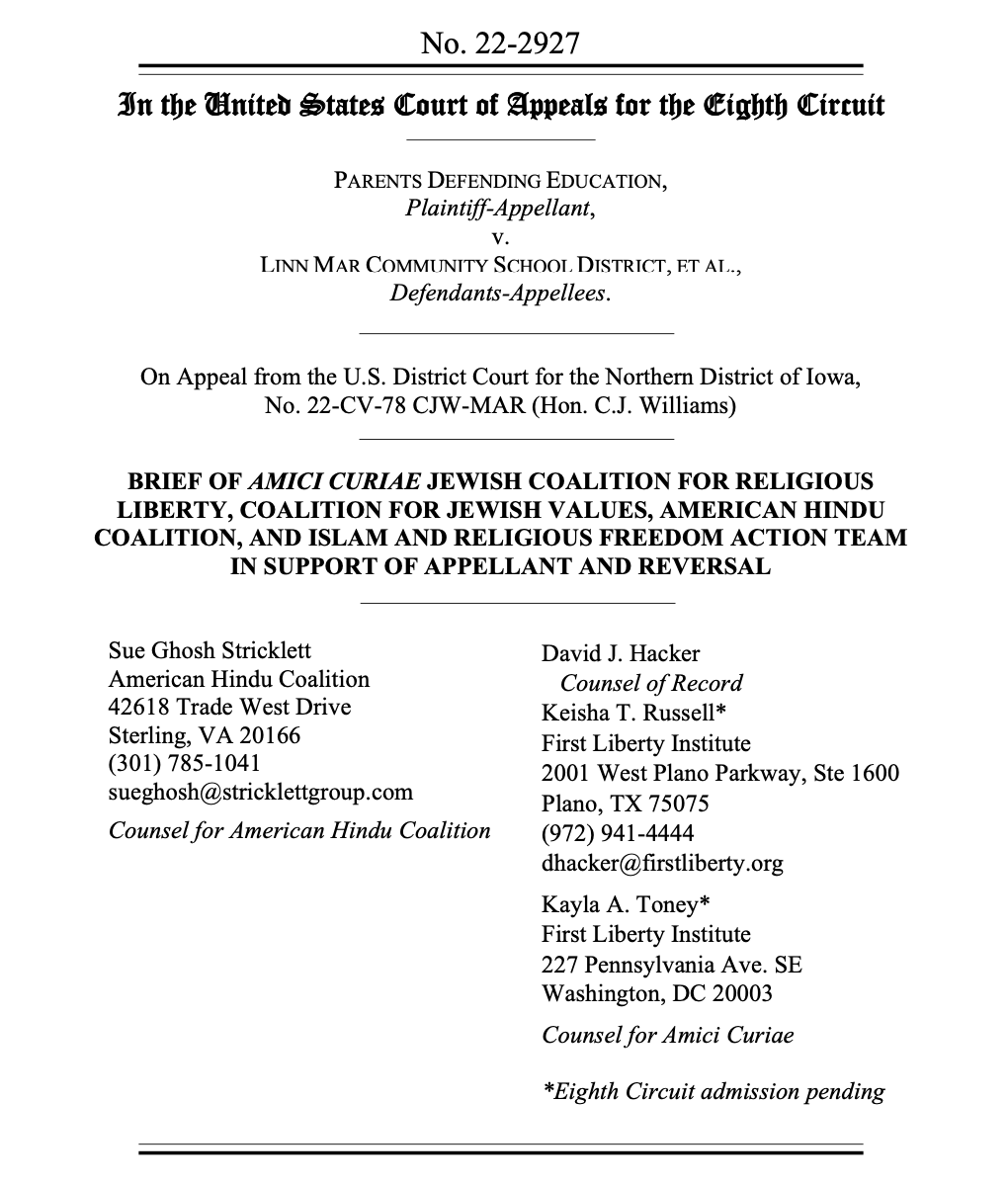
Parents v. Montgomery County Board of Education

Parents Defending Education v. Linn-Mar Community School District
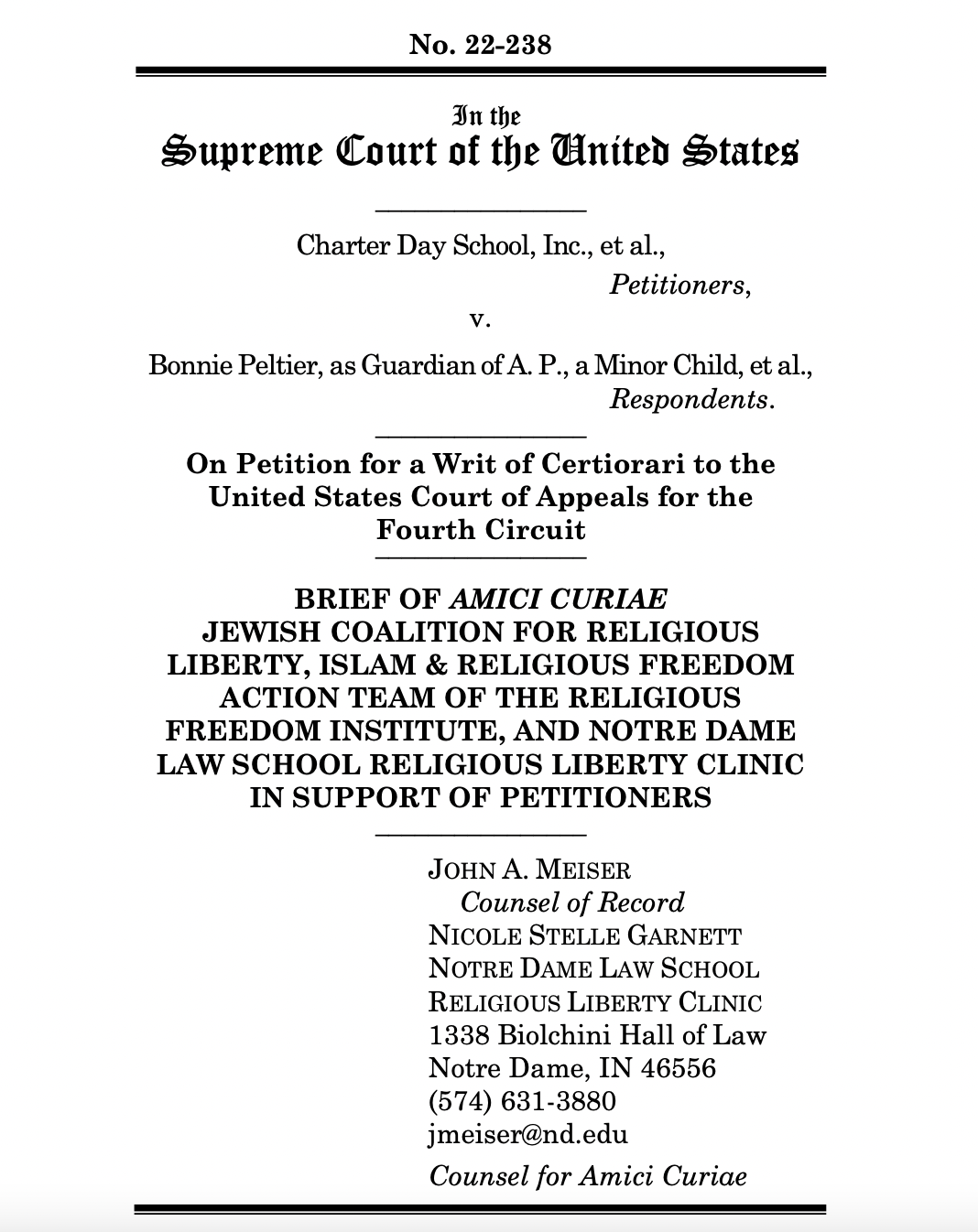
Charter Day School, Inc. v. Bonnie Peltier
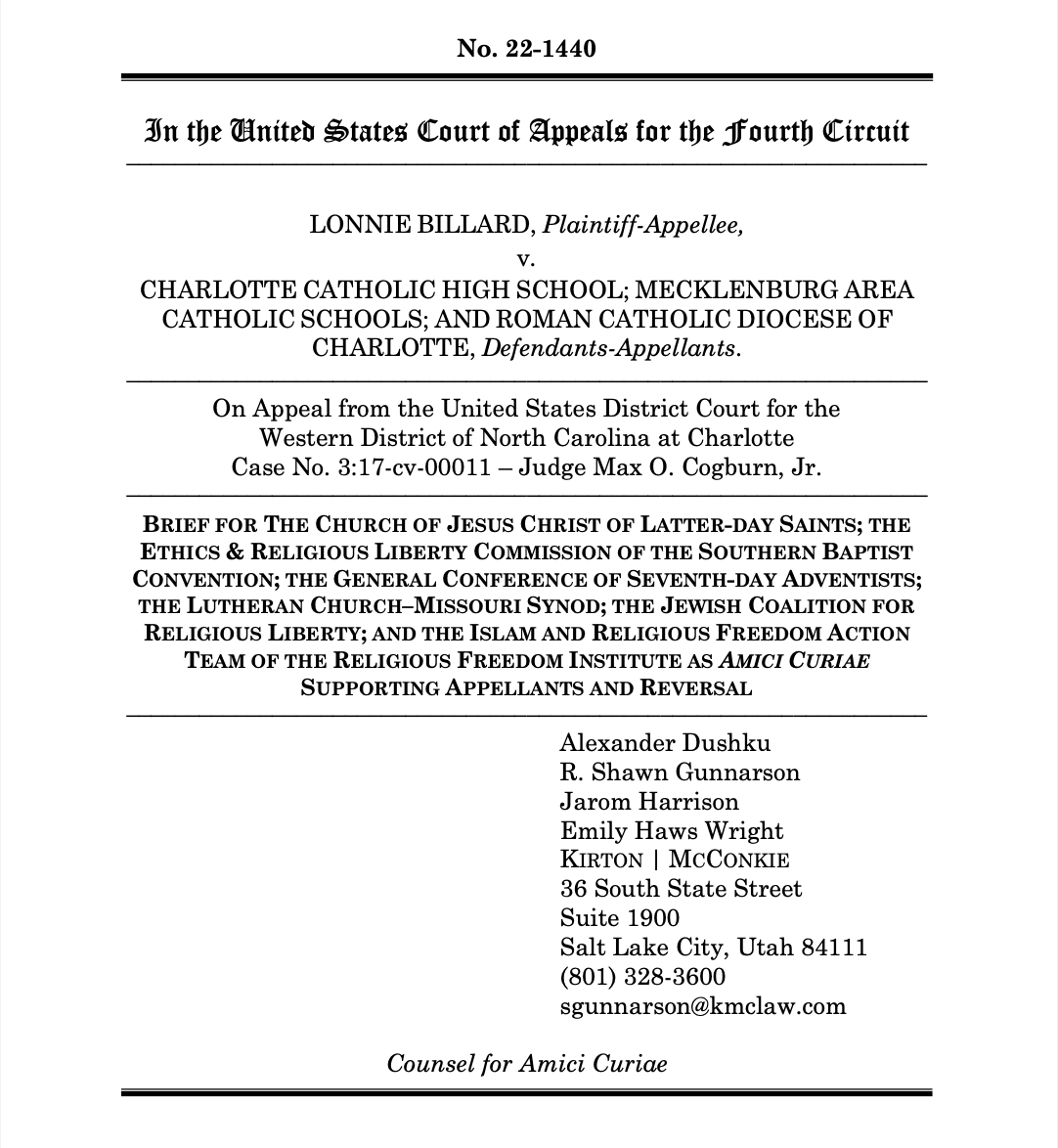
Billard v. Charlotte Catholic High School
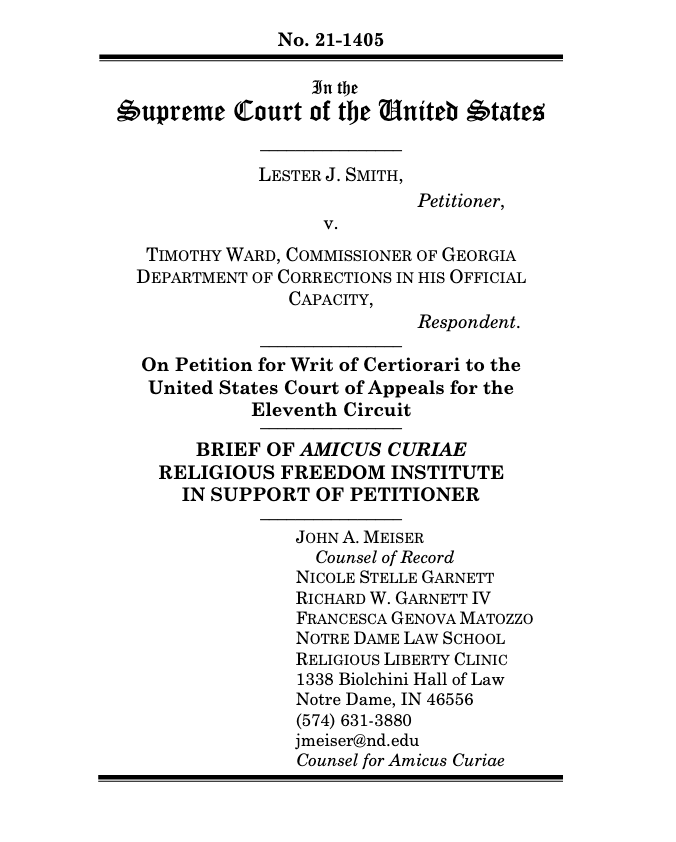
Smith v. Ward
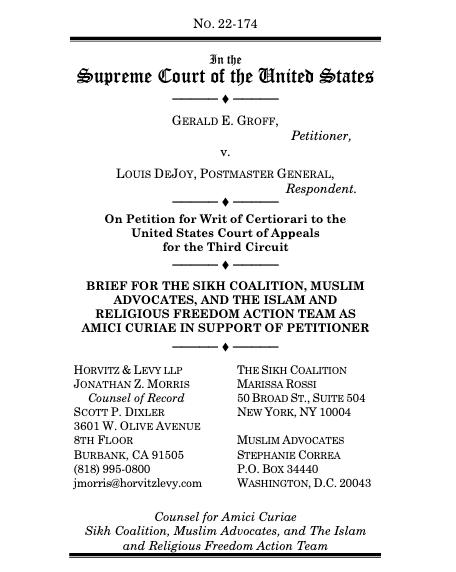
Groff v. DeJoy
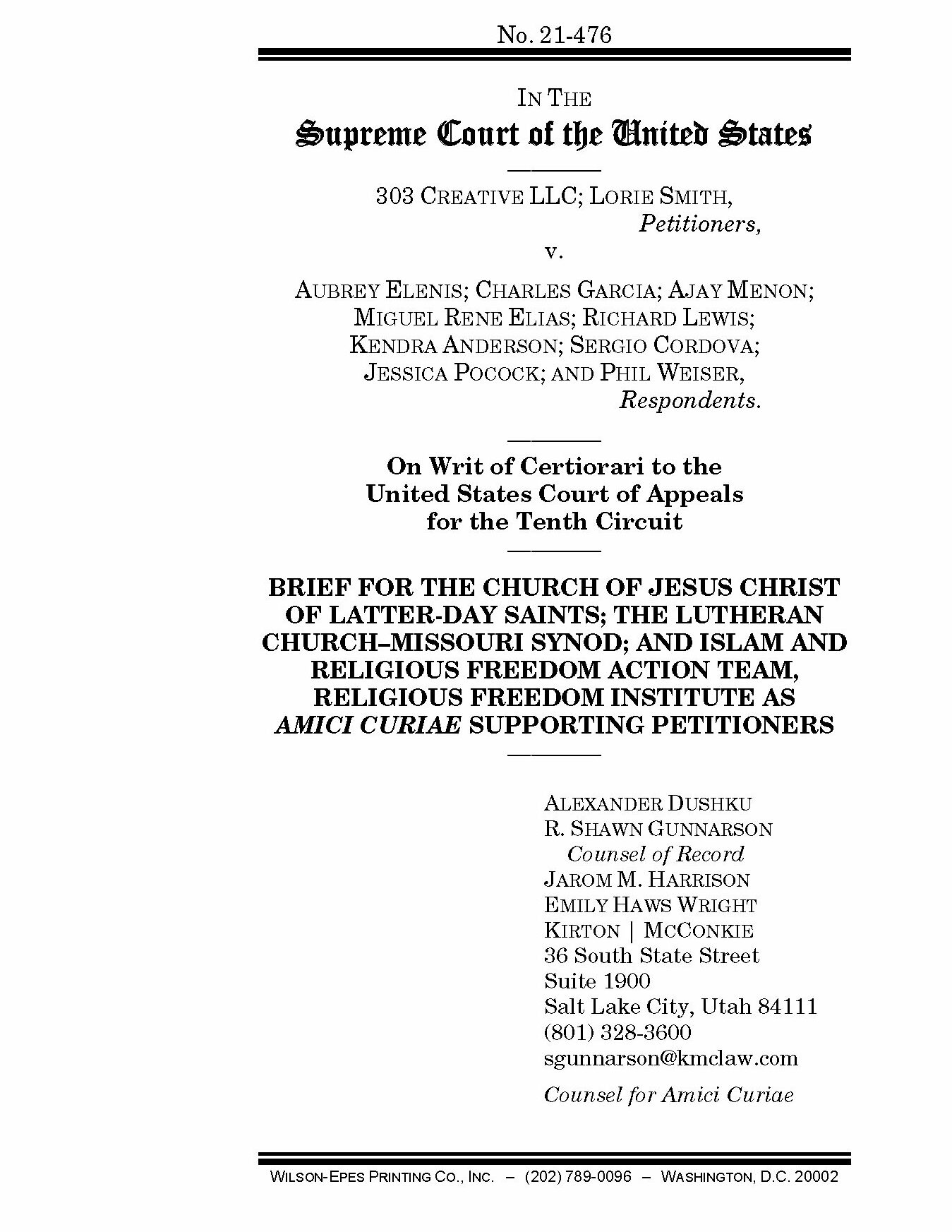
303 Creative LLC v. Elenis
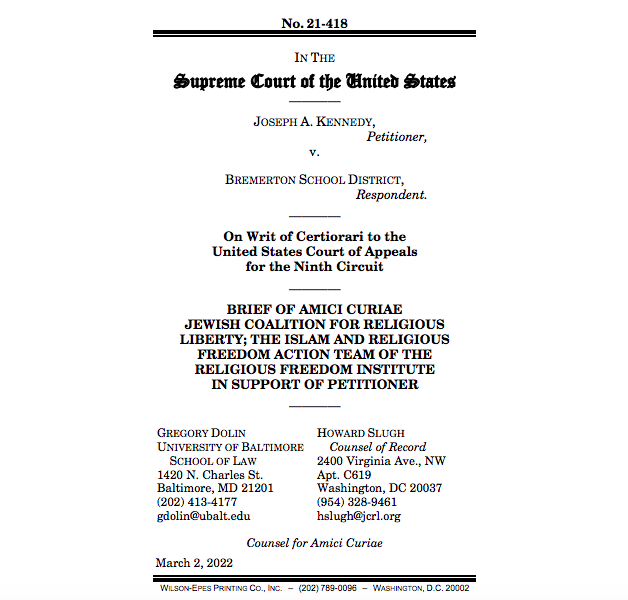
Kennedy v. Bremerton
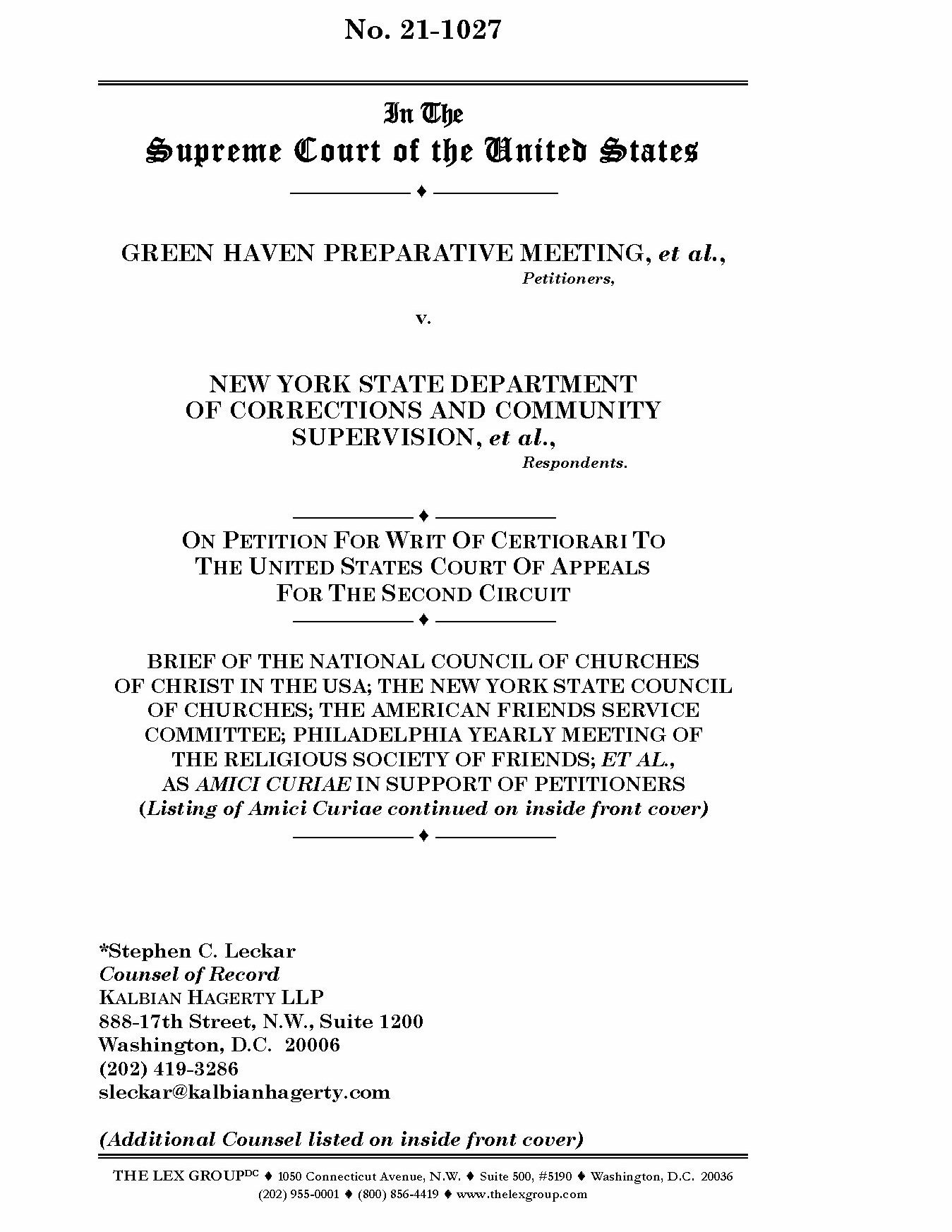
Green Haven Preparative Meeting v. New York State Department of Corrections
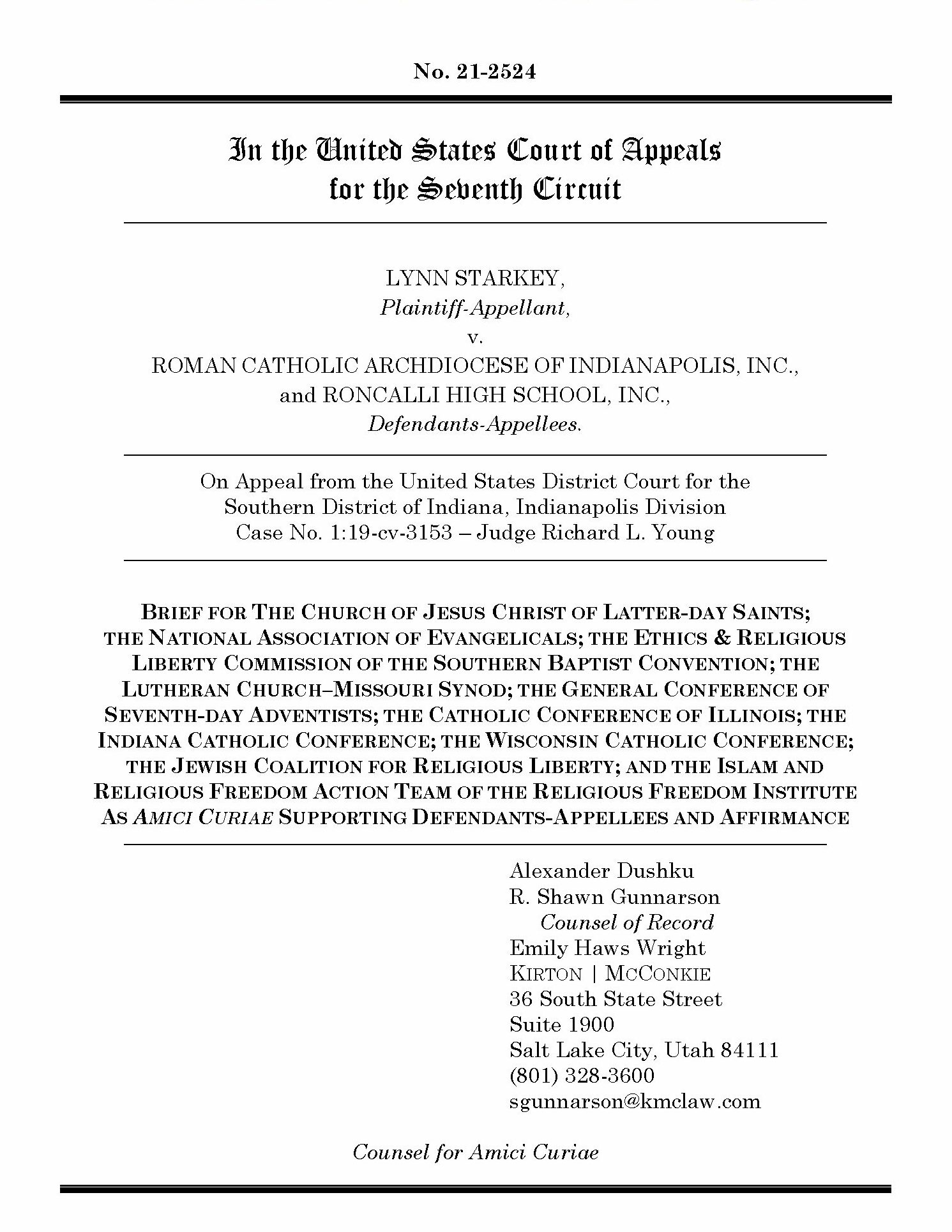
Starkey v. Roman Catholic Archdiocese of Indianapolis and Roncalli High School
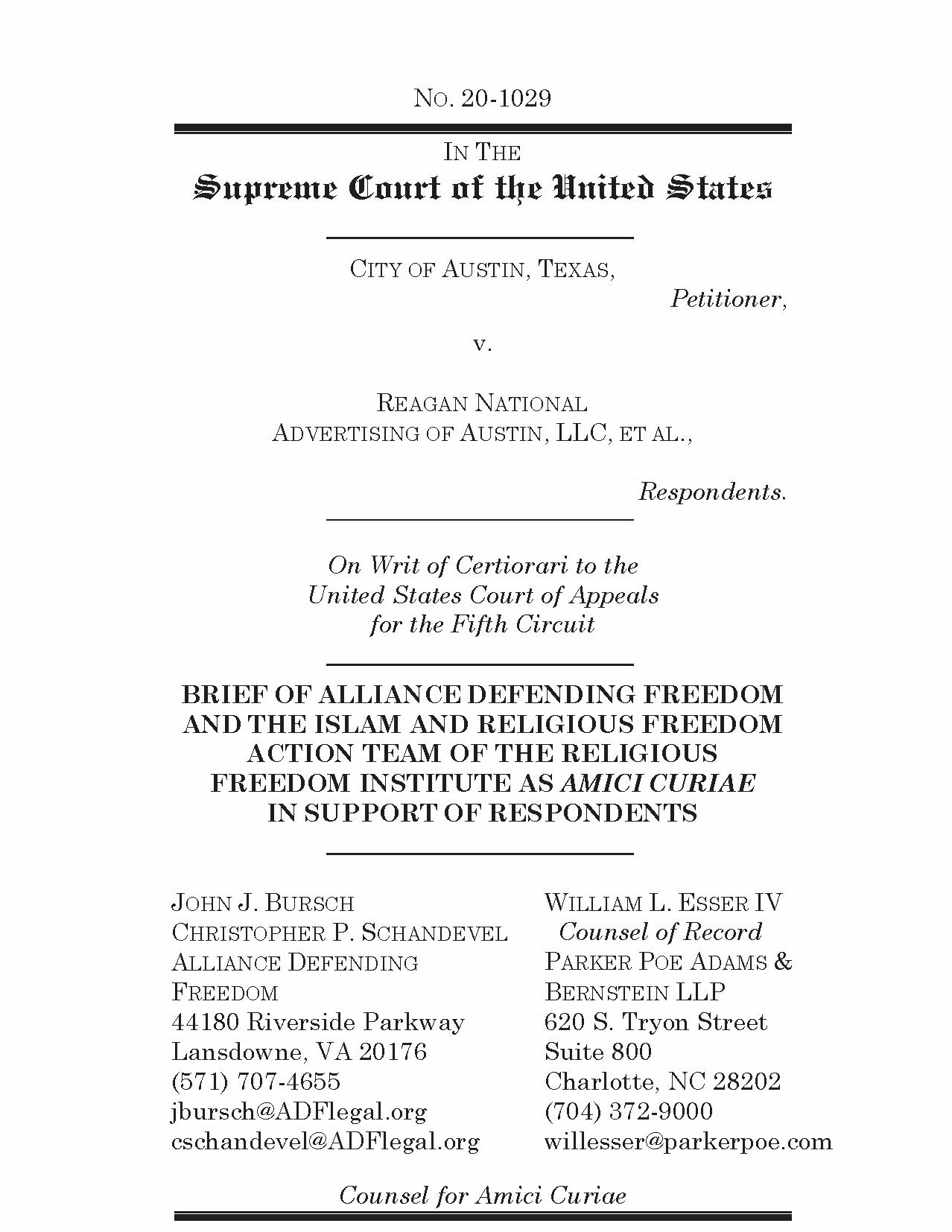
City of Austin v. Reagan National Advertising of Texas, Inc.
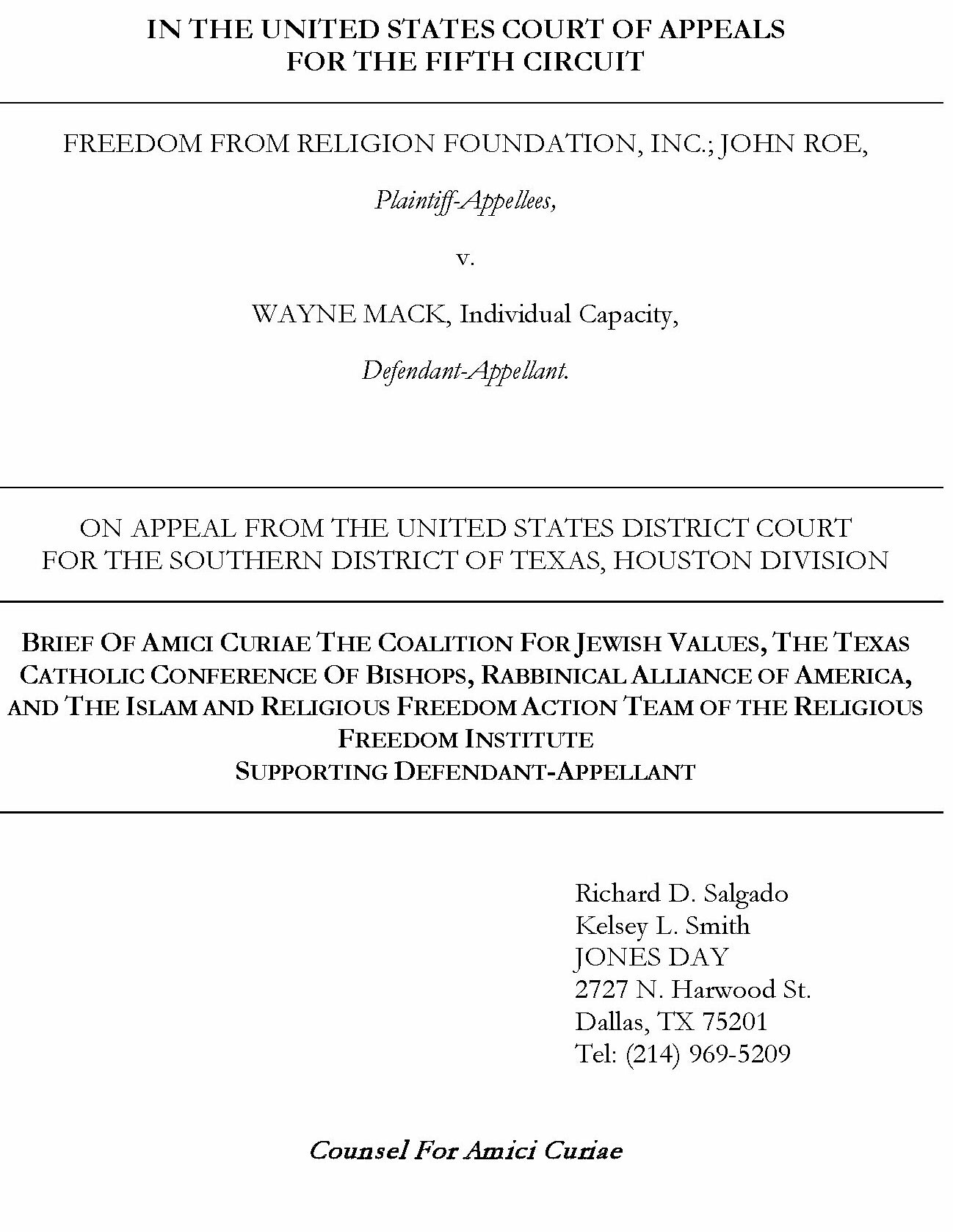
Freedom from Religious Foundation v. Mack
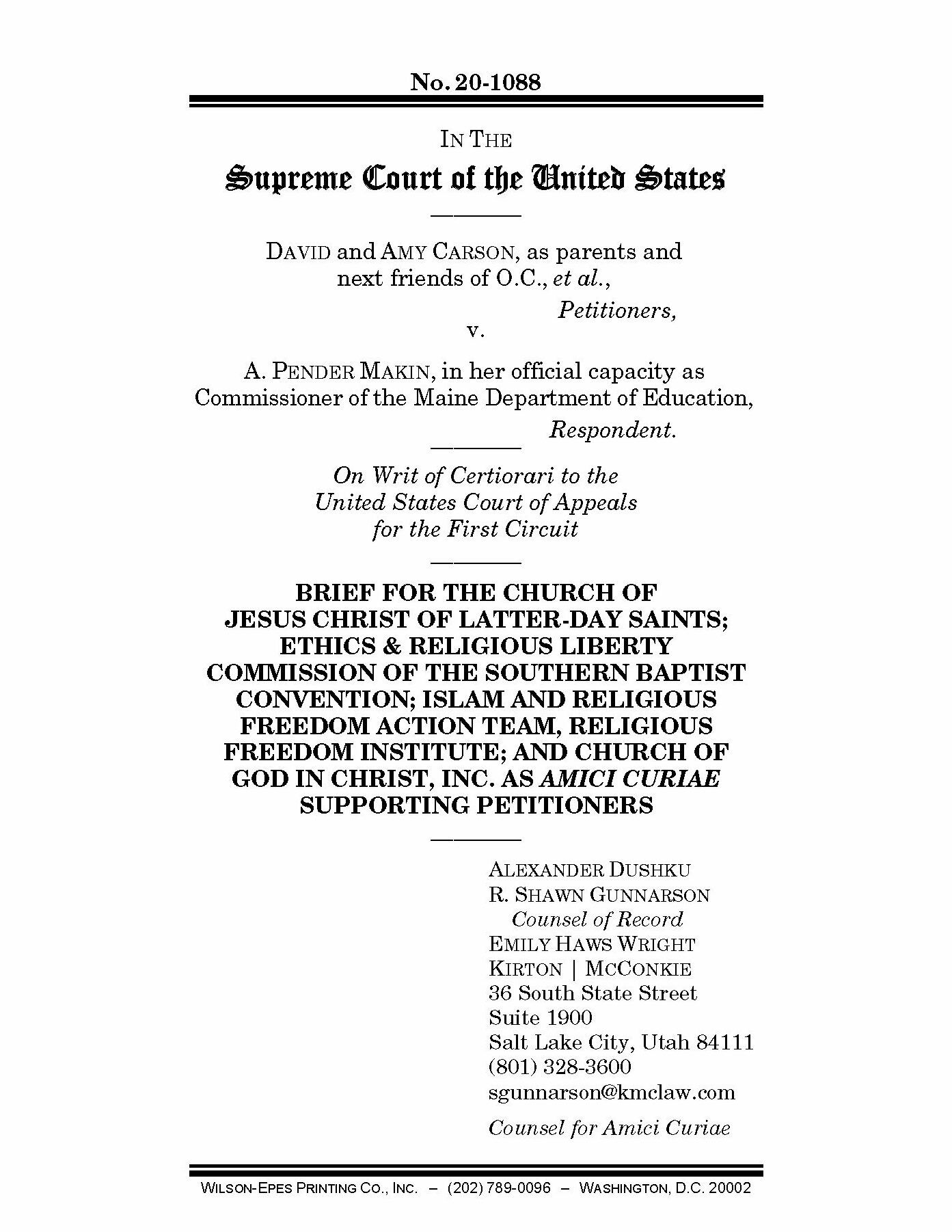
Carson v. Makin

Seattle’s Union Gospel Mission v. Woods
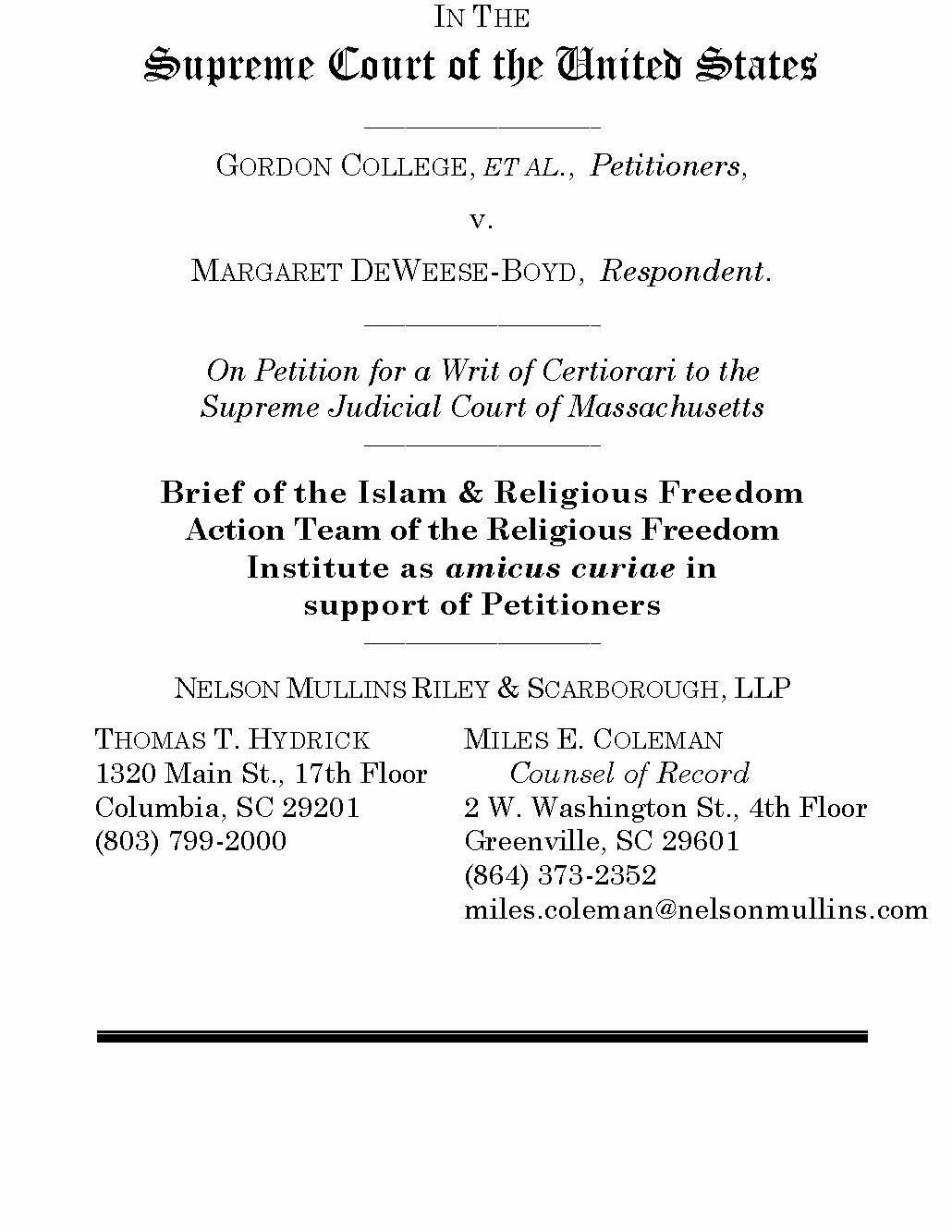
Gordon College v. DeWeese-Boyd
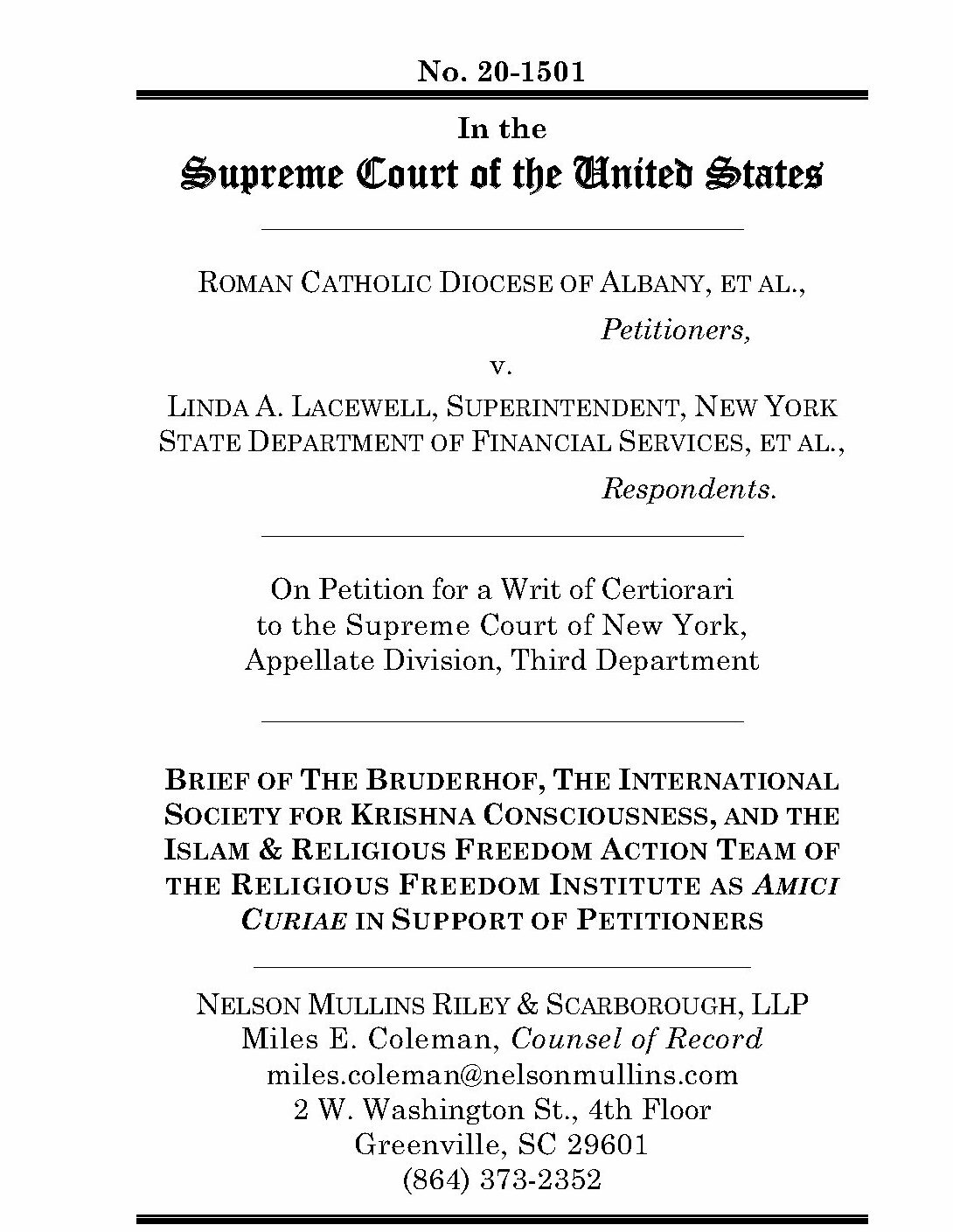
Roman Catholic Diocese of Albany v. Lacewell
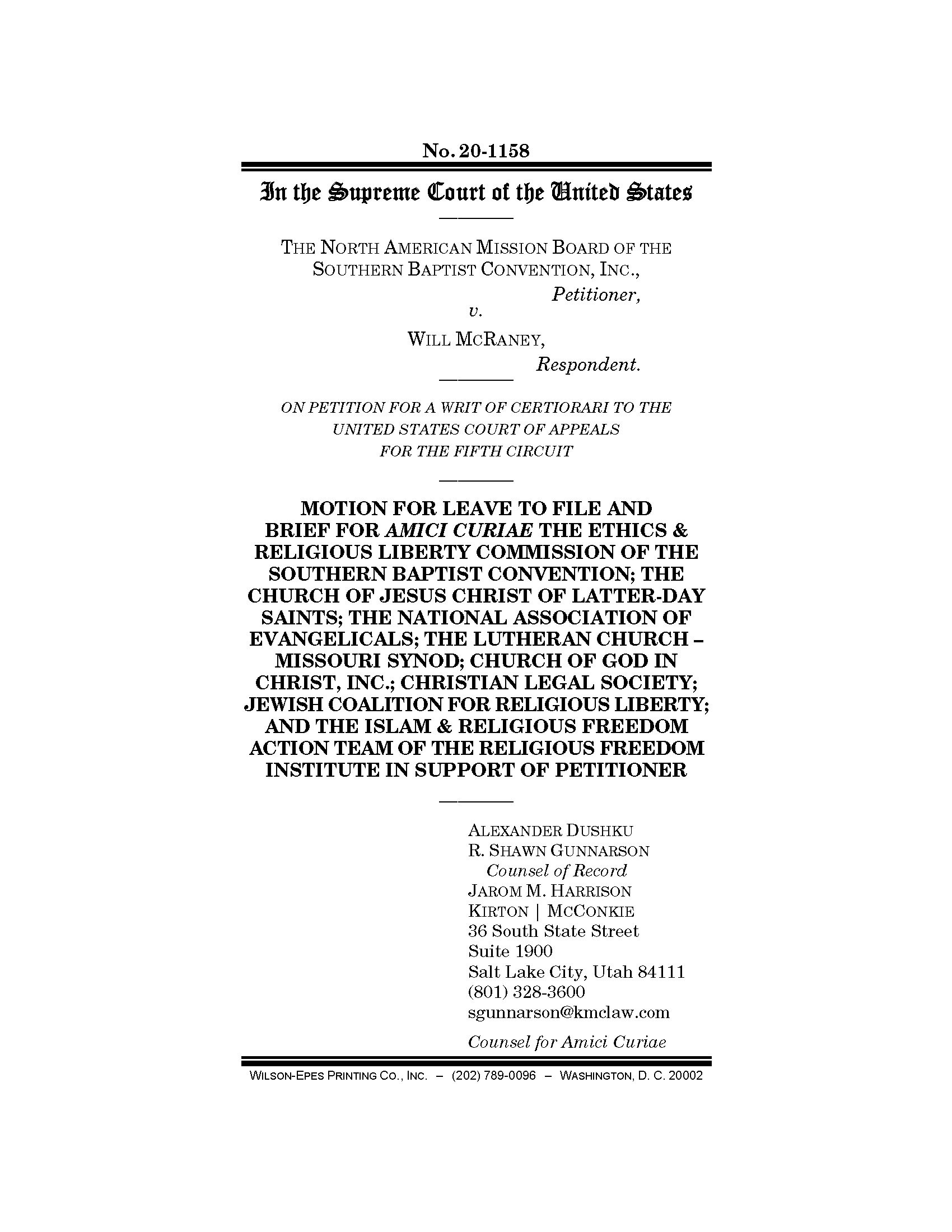
North American Mission Board of the Southern Baptist Convention Inc. v. McRaney
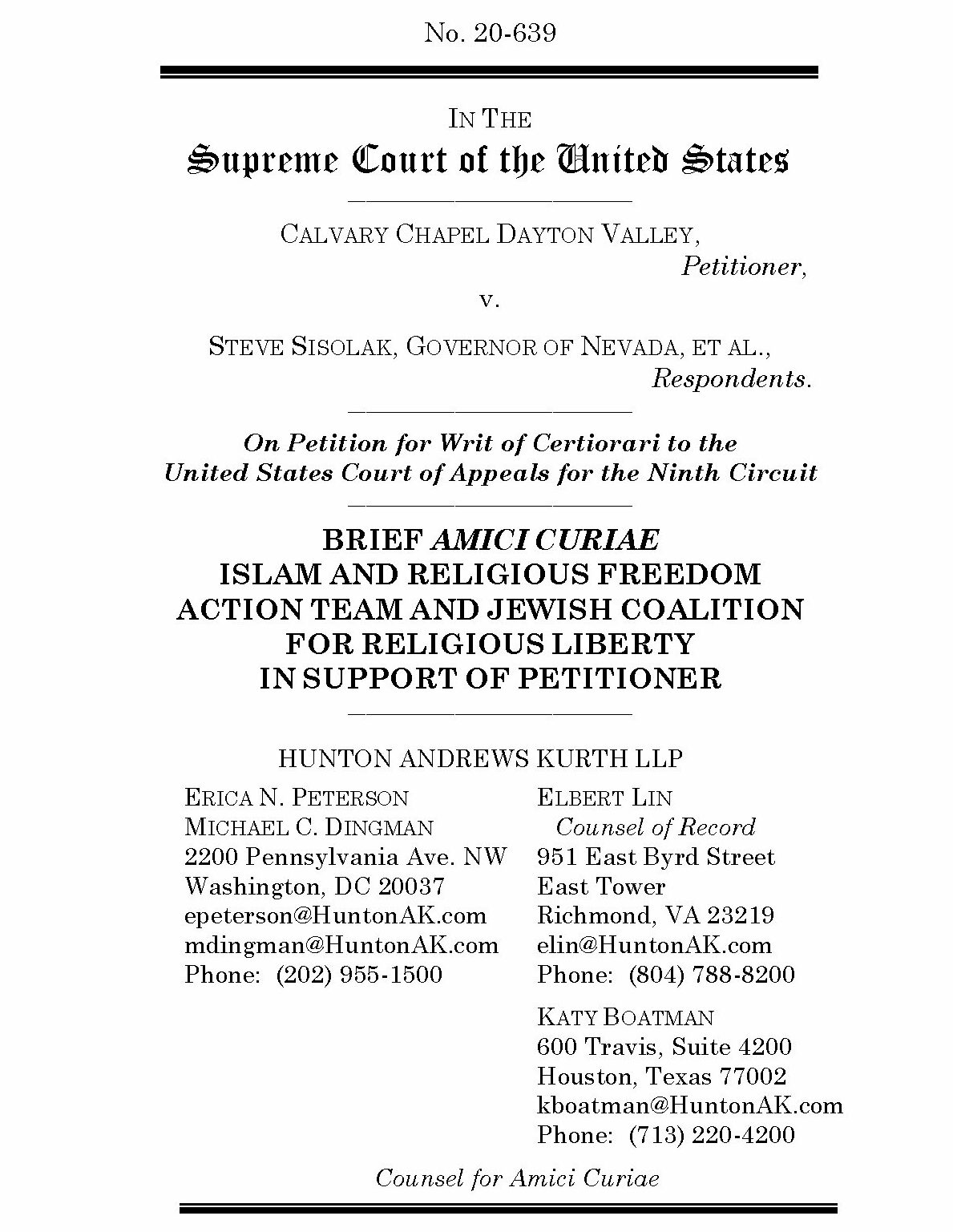
Calvary Chapel Dayton Valley v. Sisolak
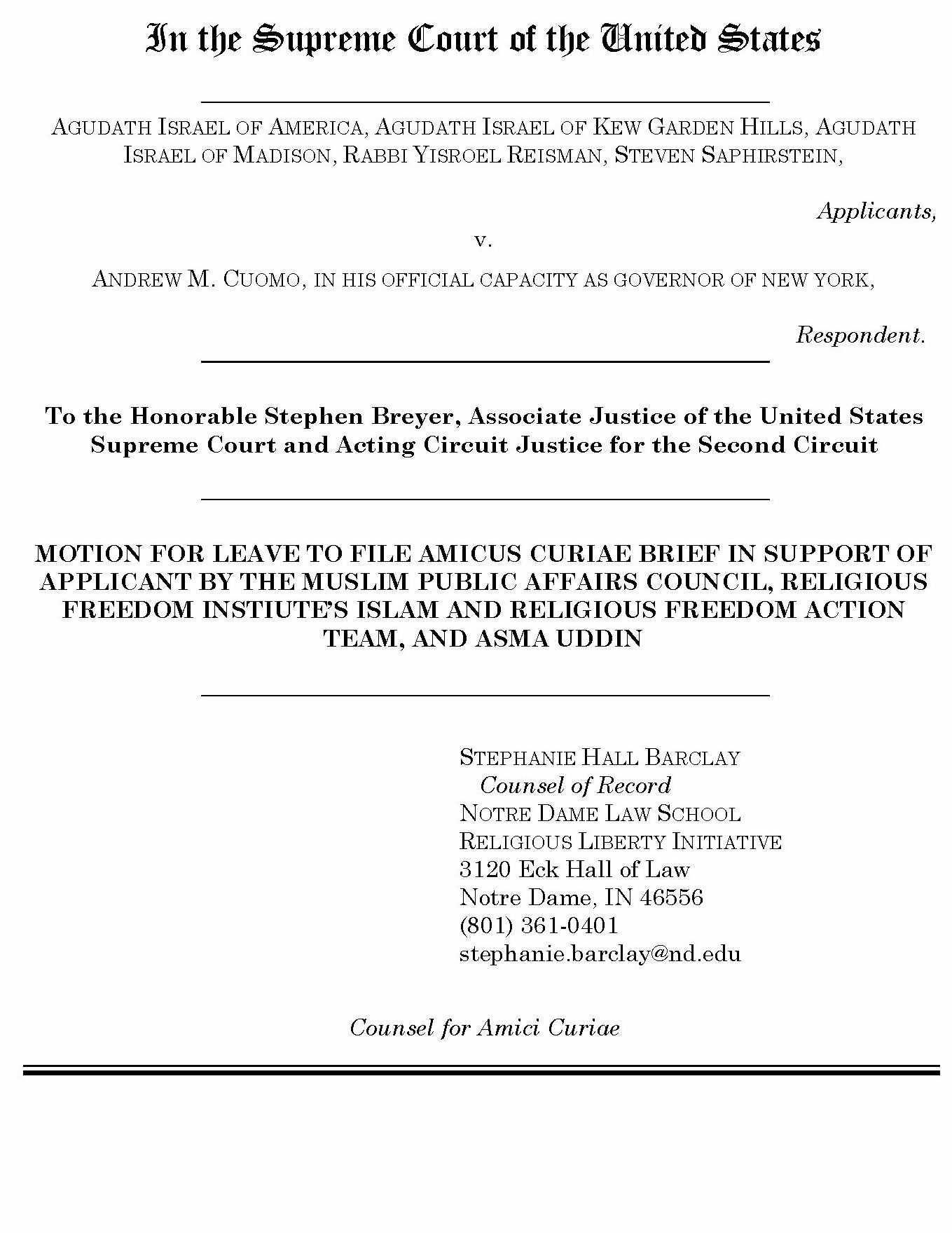
Agudath Israel of America v. Cuomo
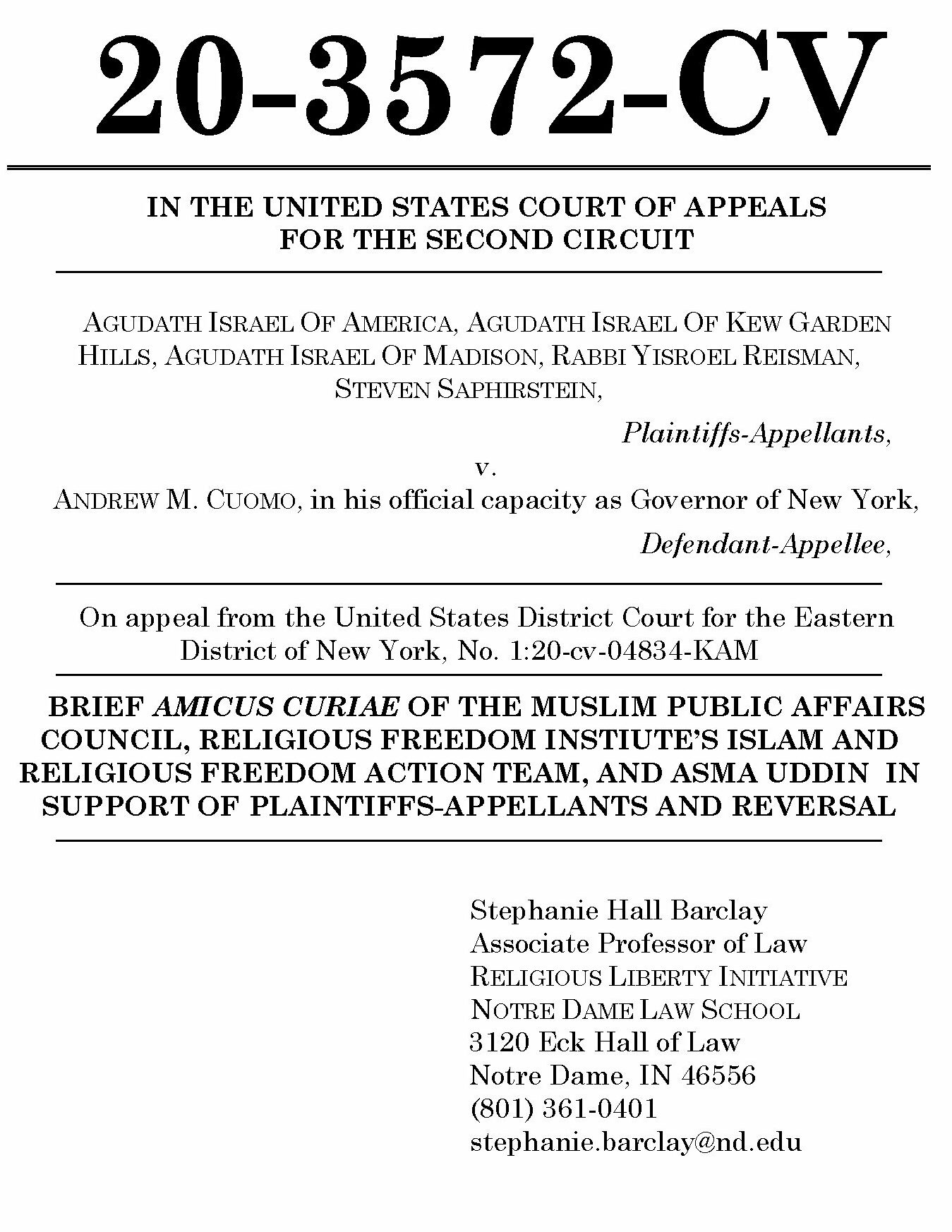
Agudath Israel of America v. Cuomo 1
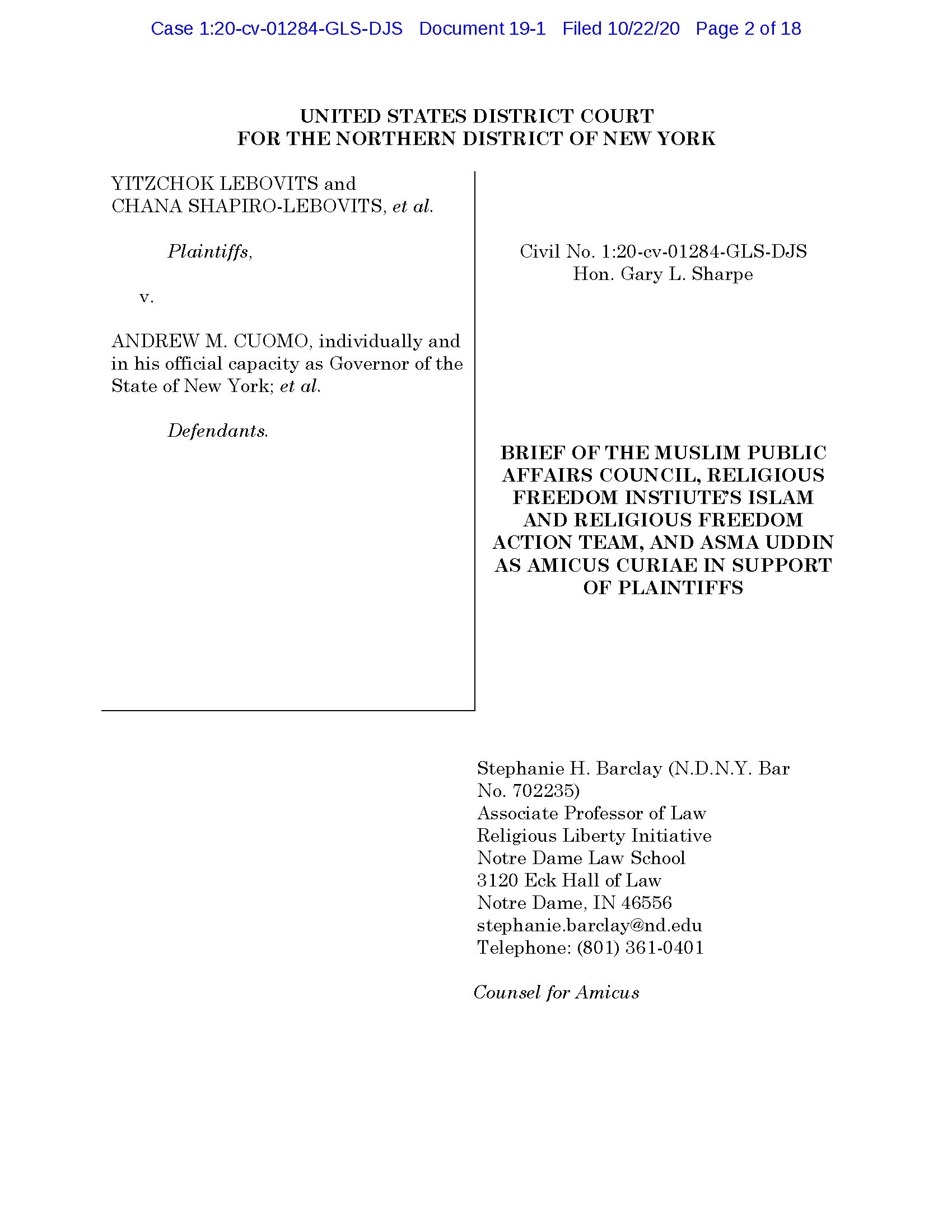
Lebovits v. Cuomo
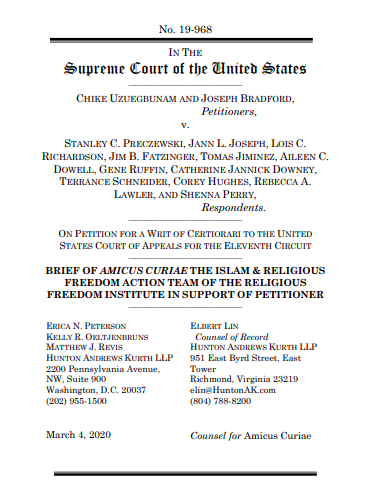
Uzuegbunam v. Preczewski
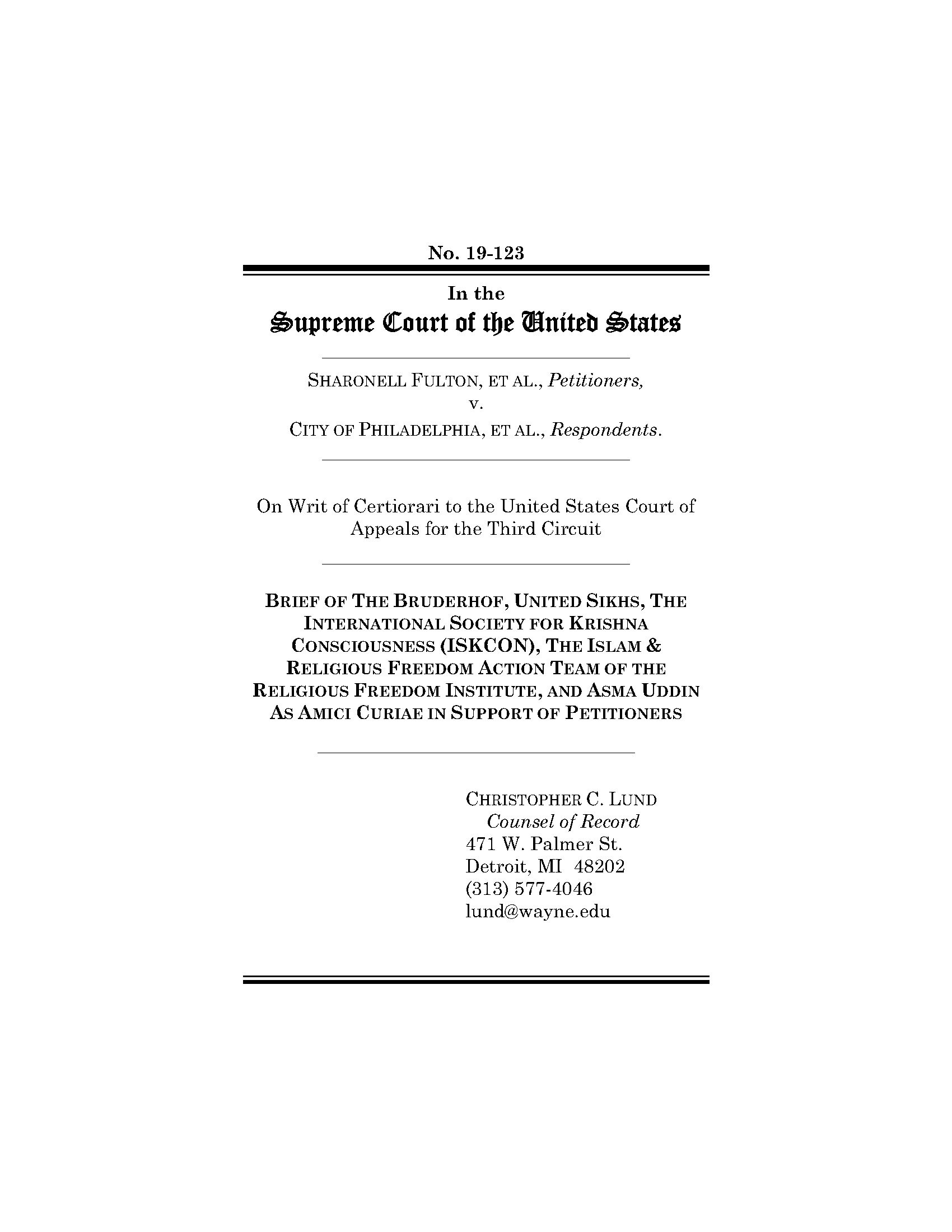
Fulton v. City of Philadelphia
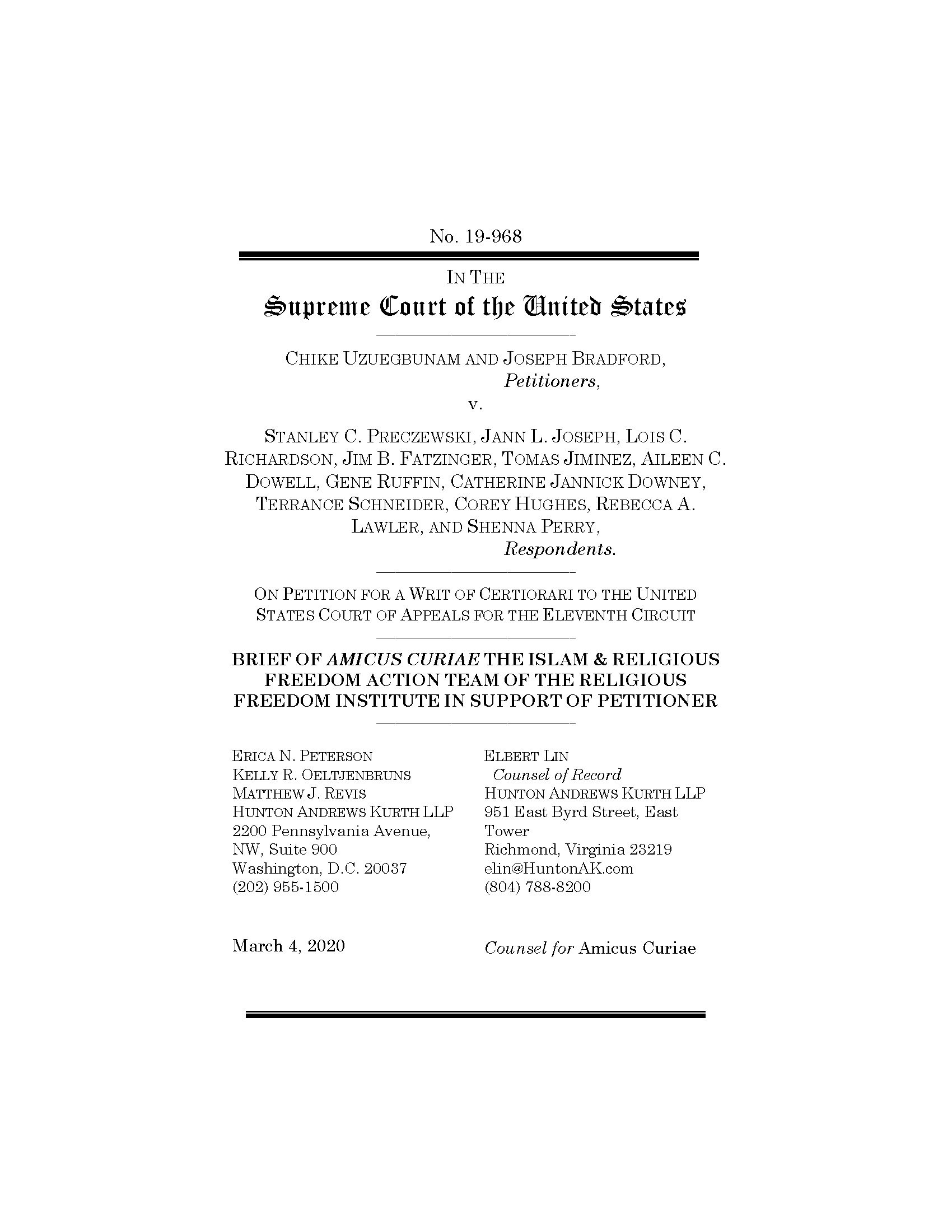
Uzuegbunam v. Preczewski 1
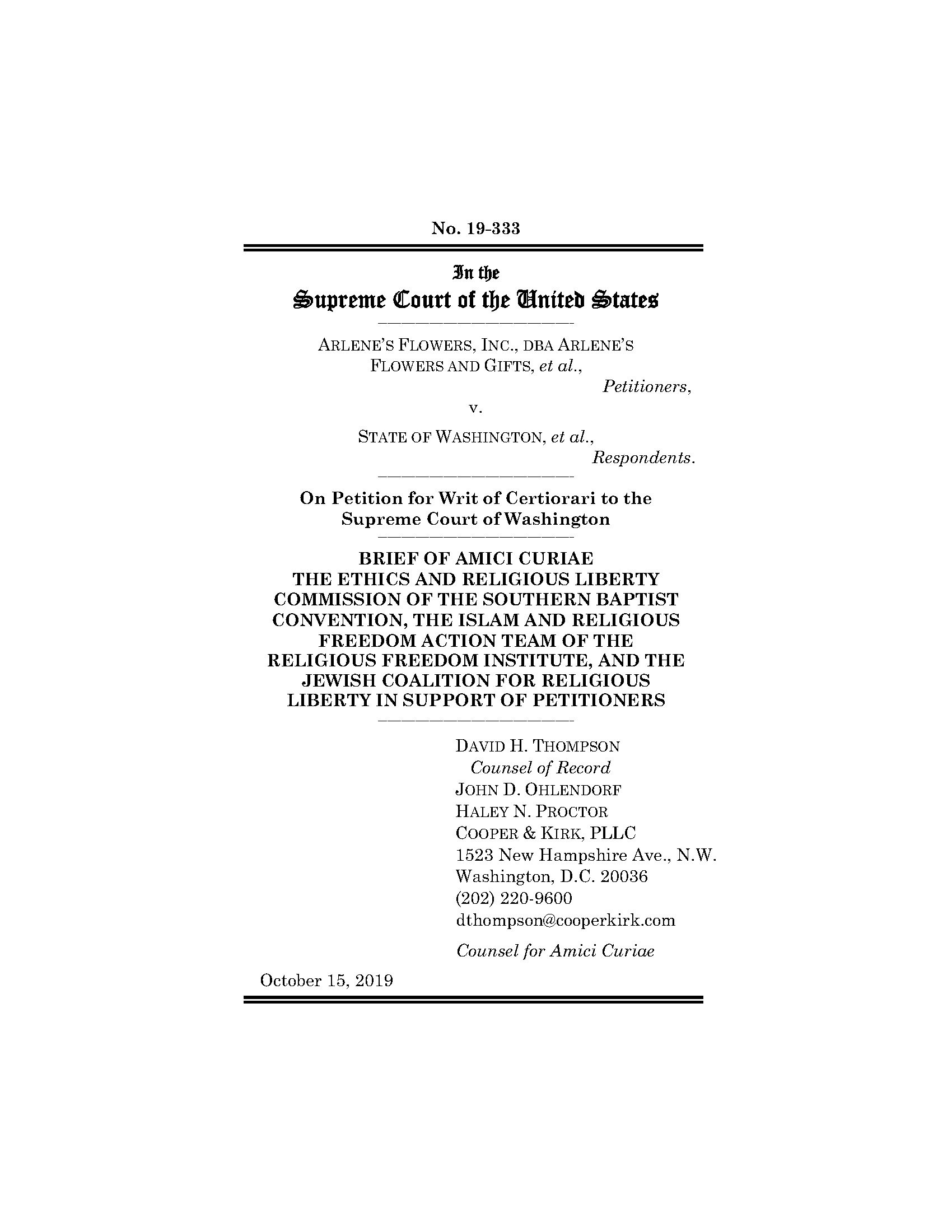
Arlene’s Flowers, Inc., v. Washington
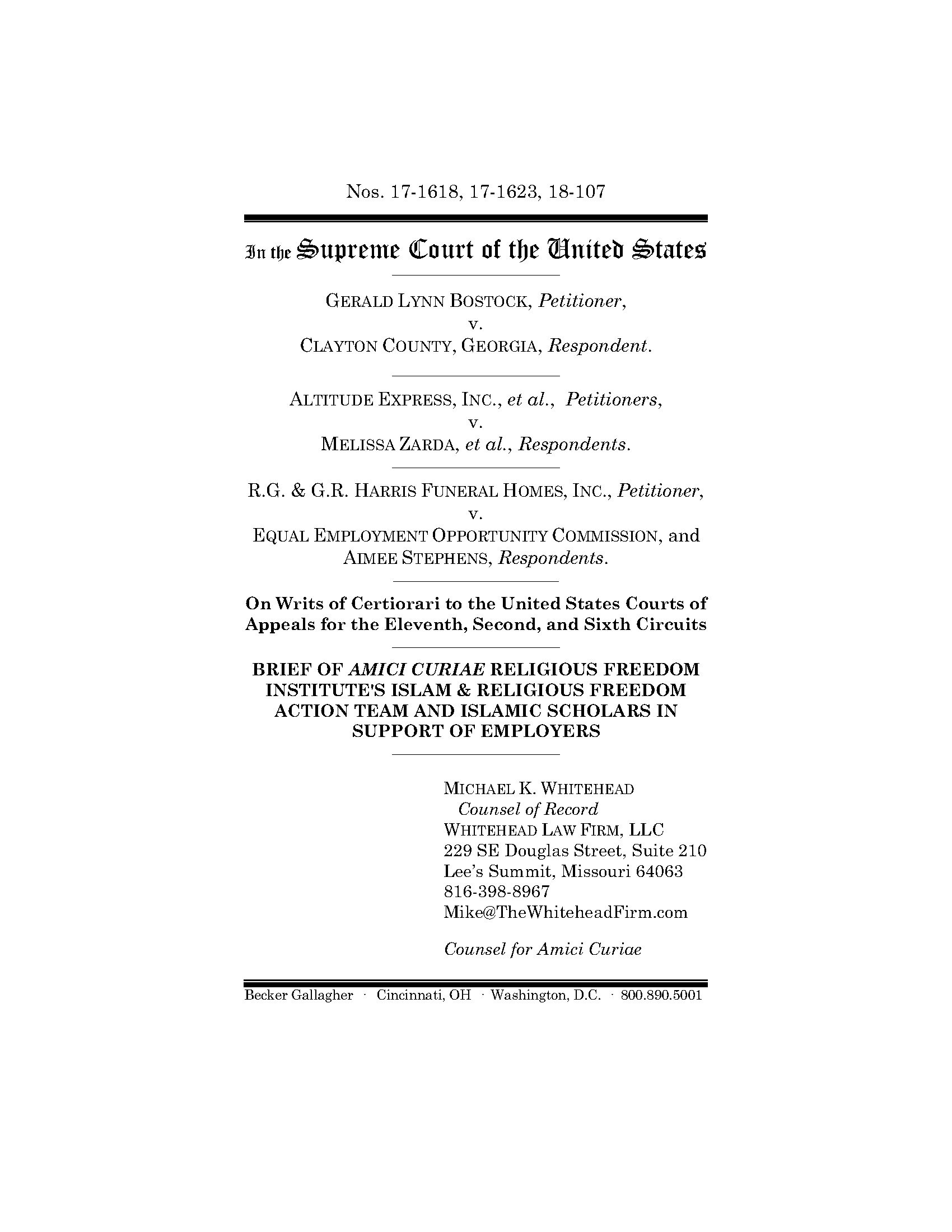
Bostock v. Clayton County, Georgia
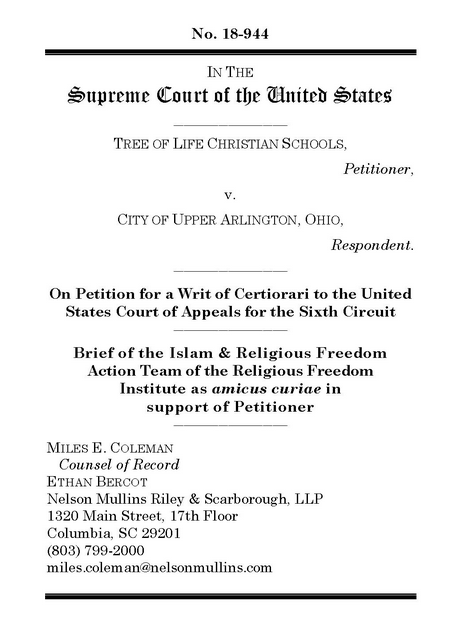
Tree of Life Christian Schools v. City of Upper Arlington
